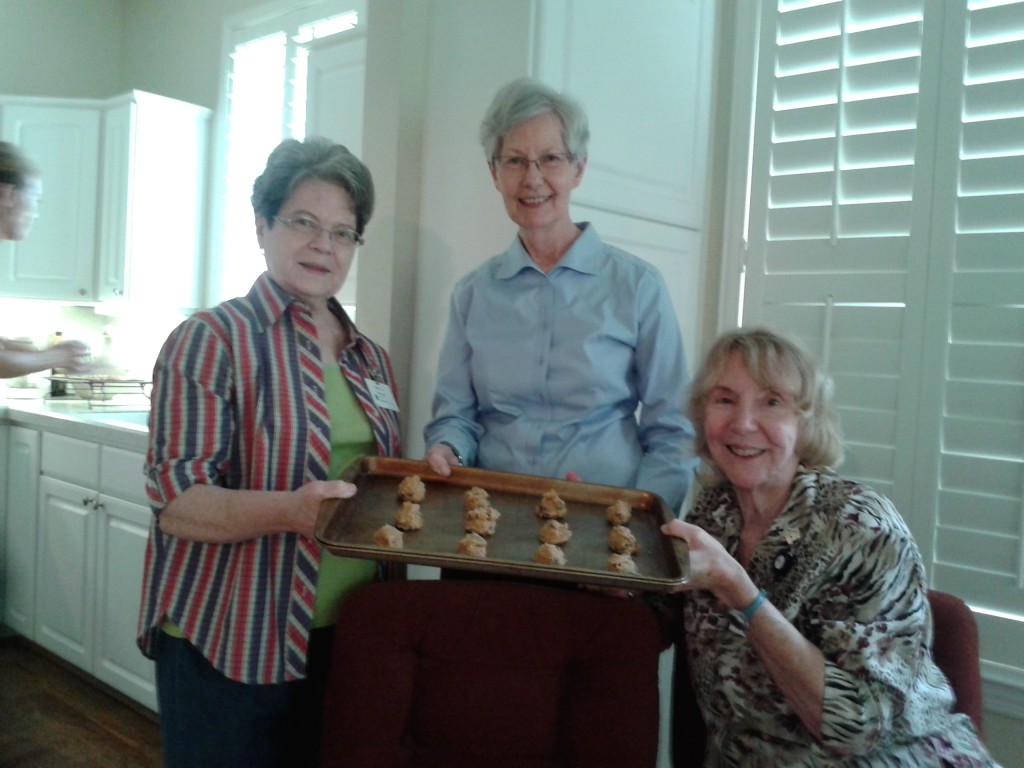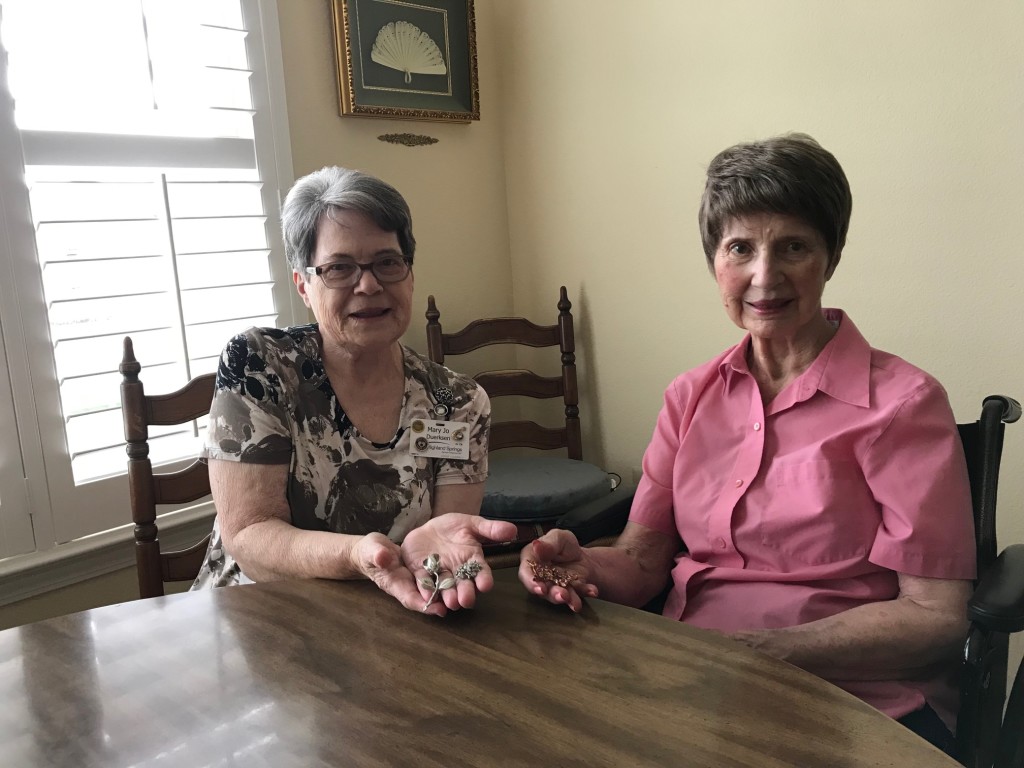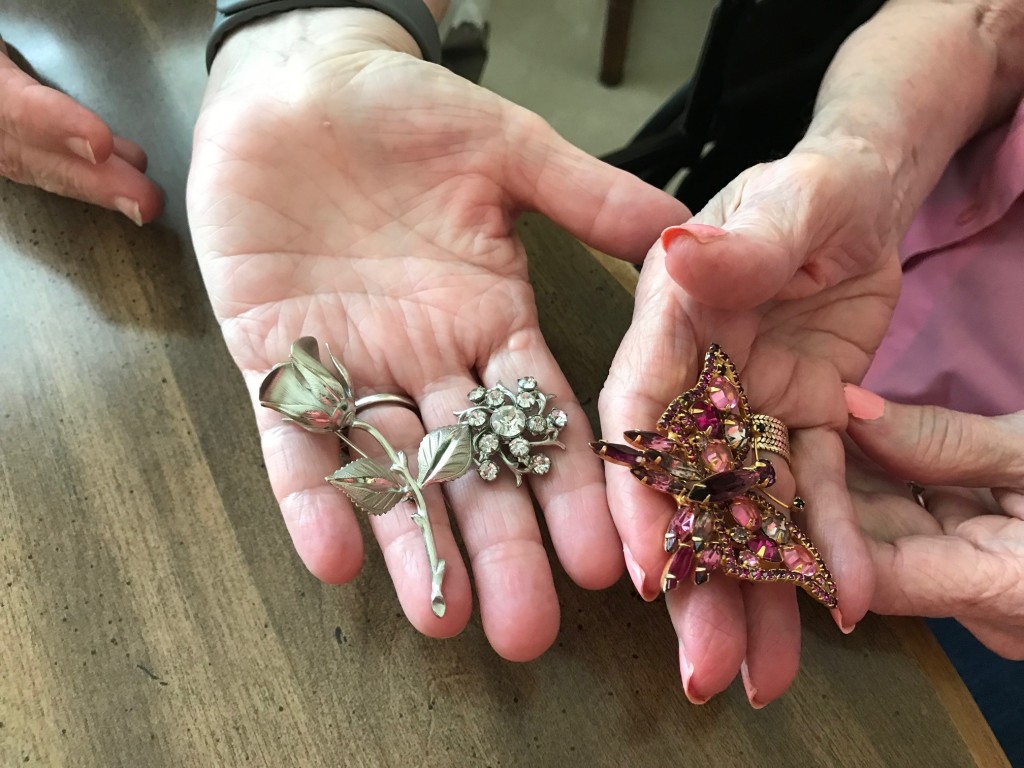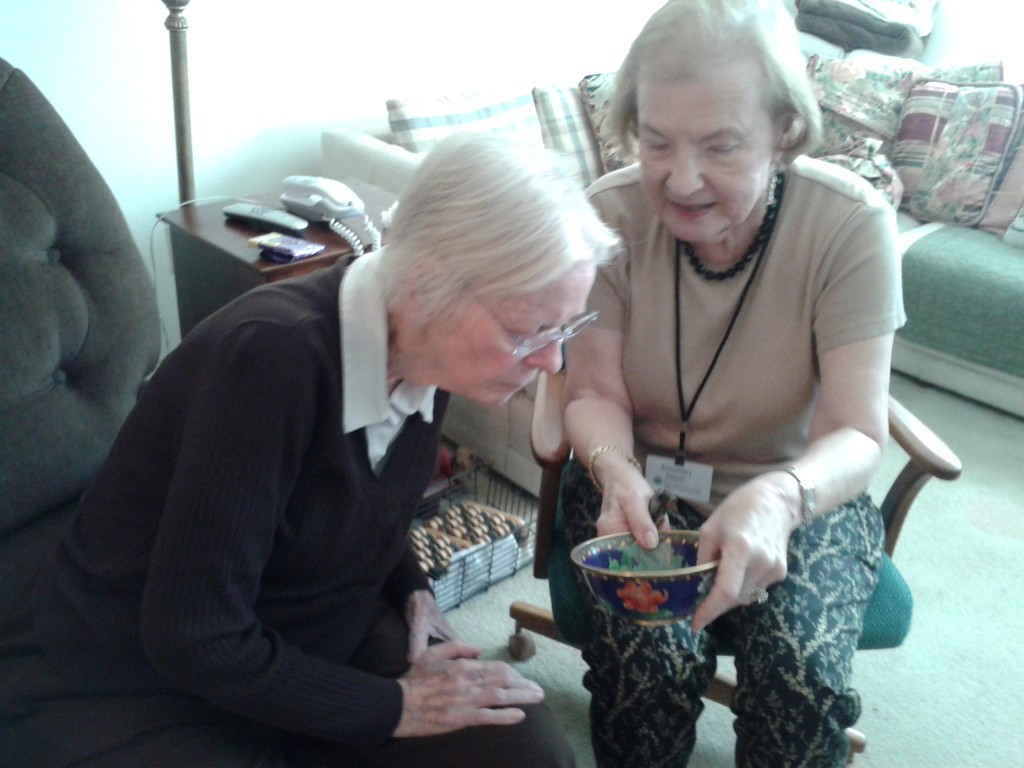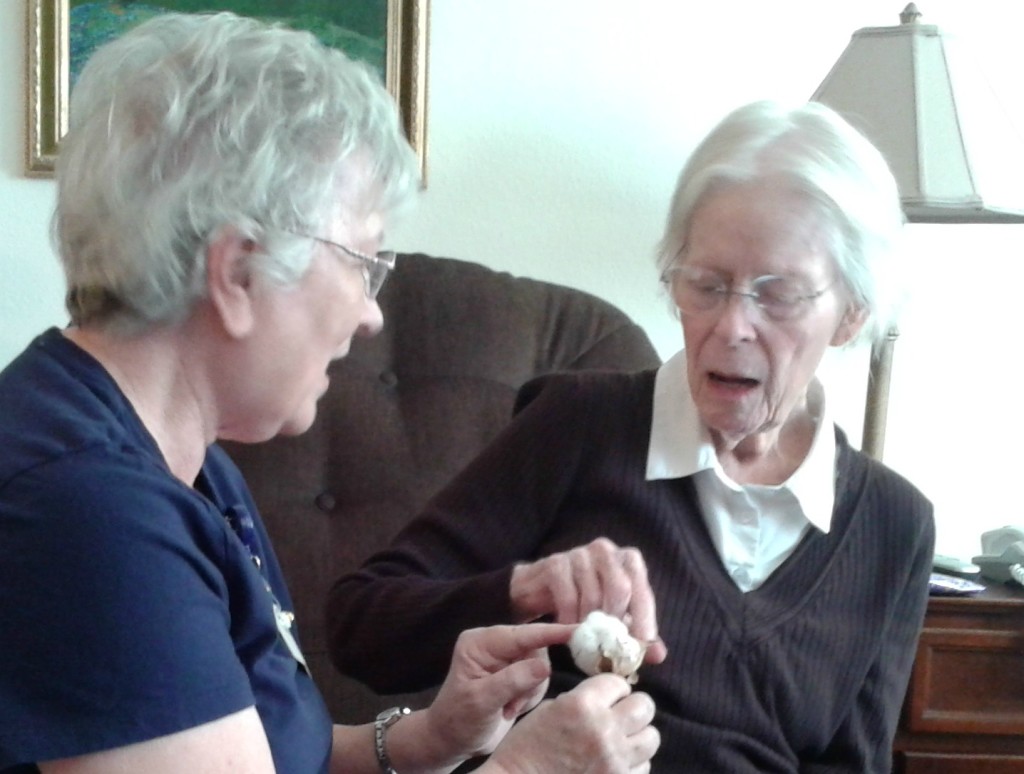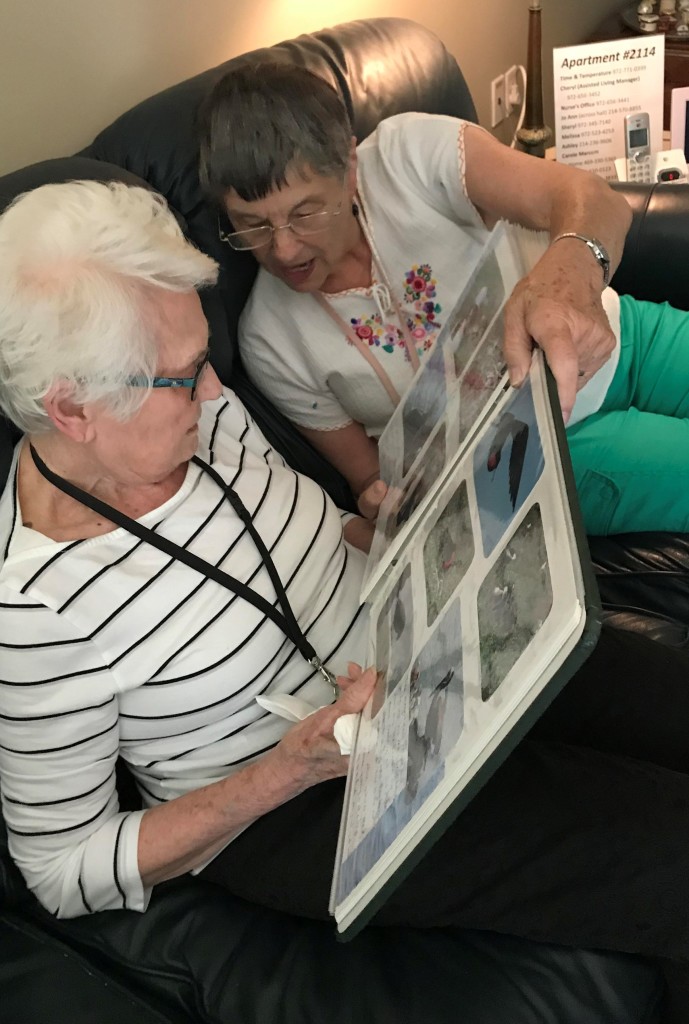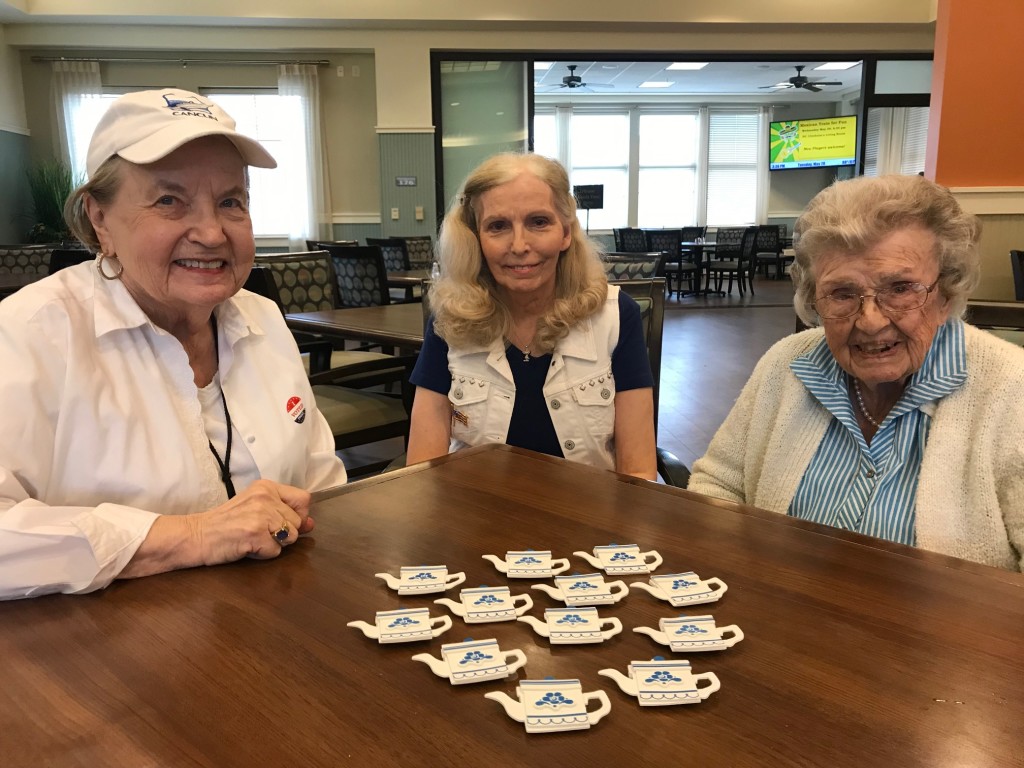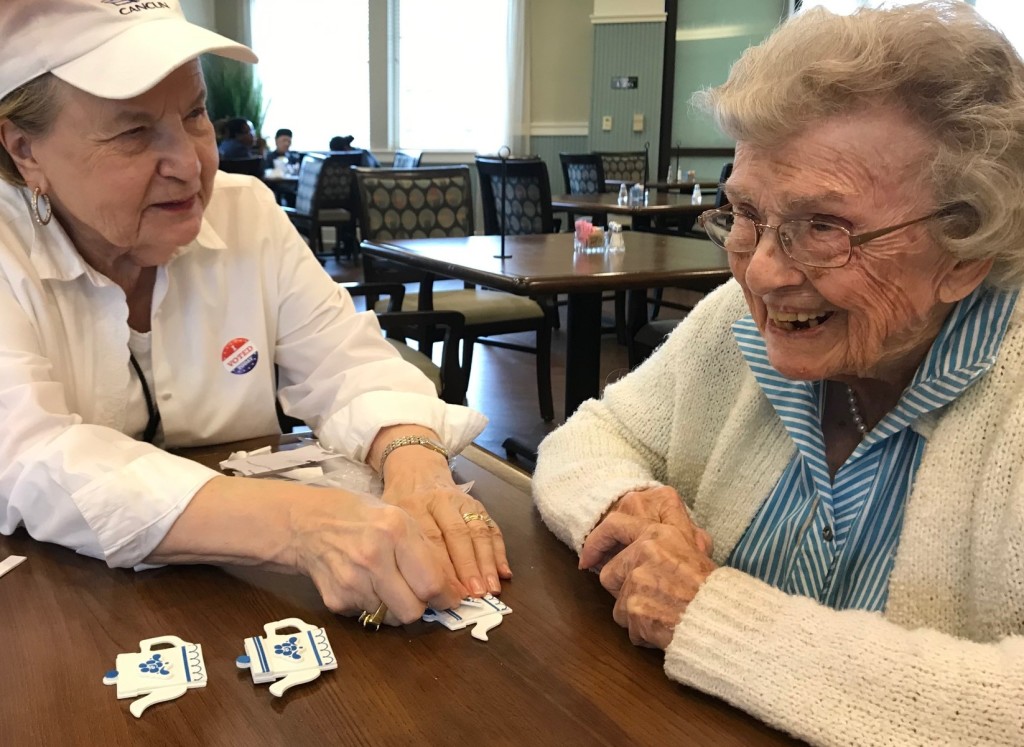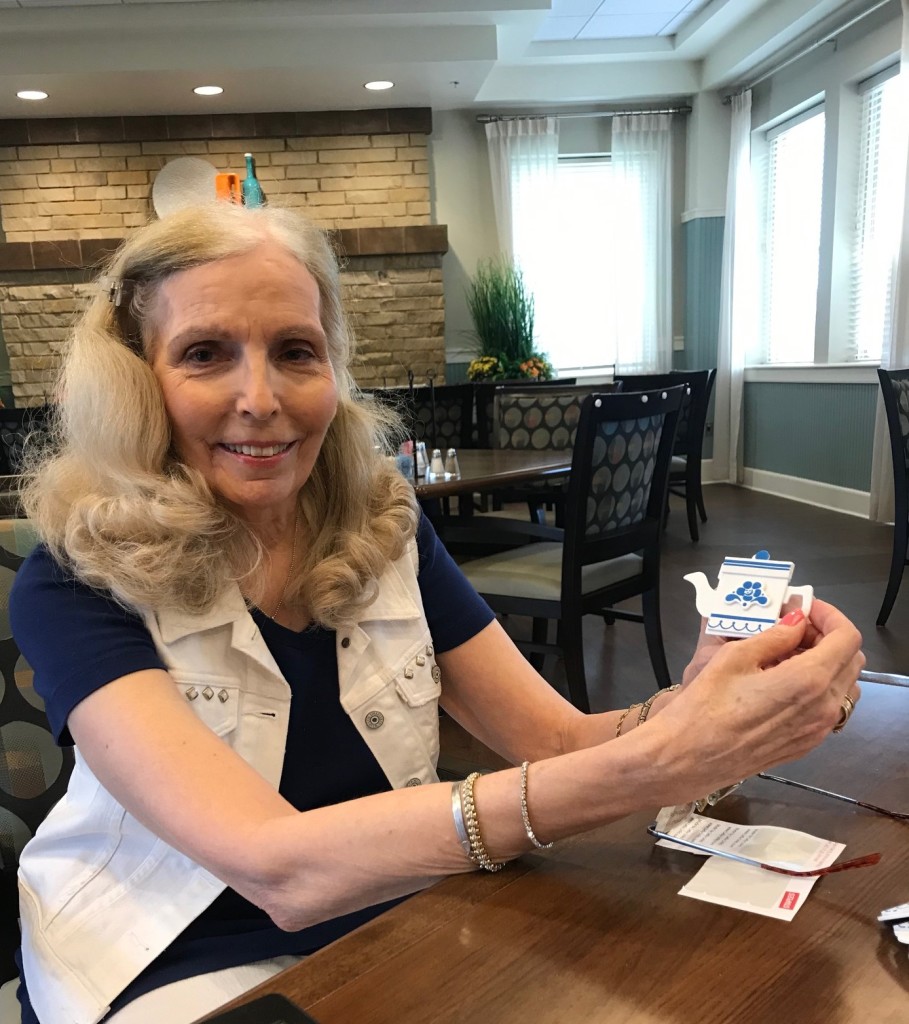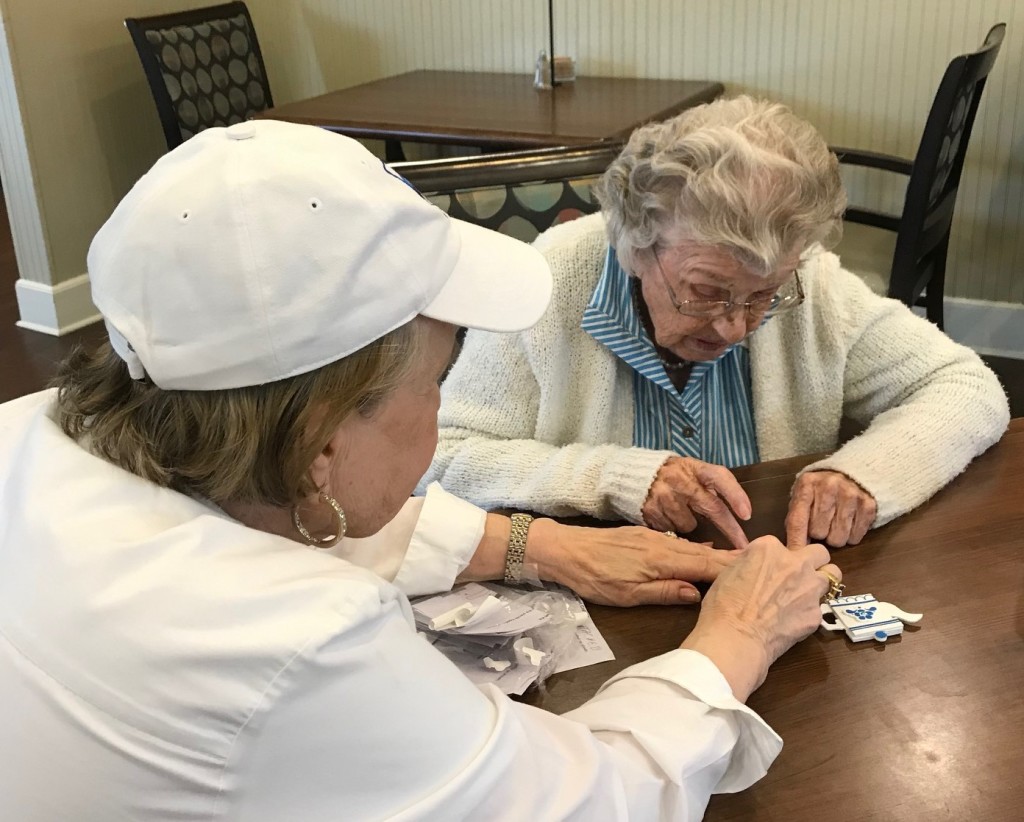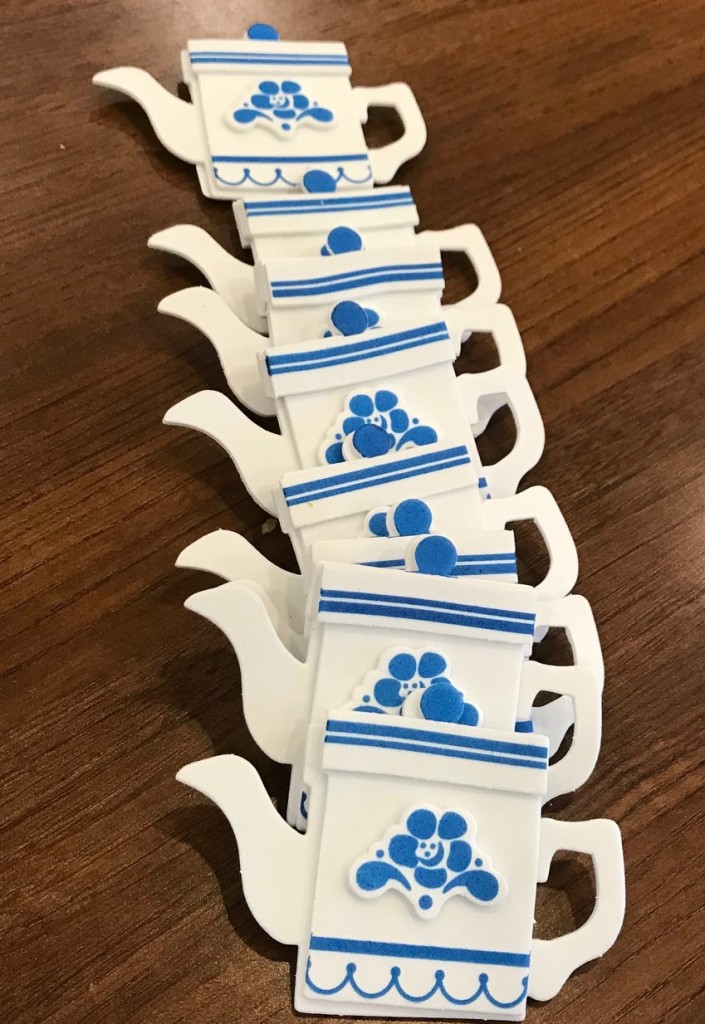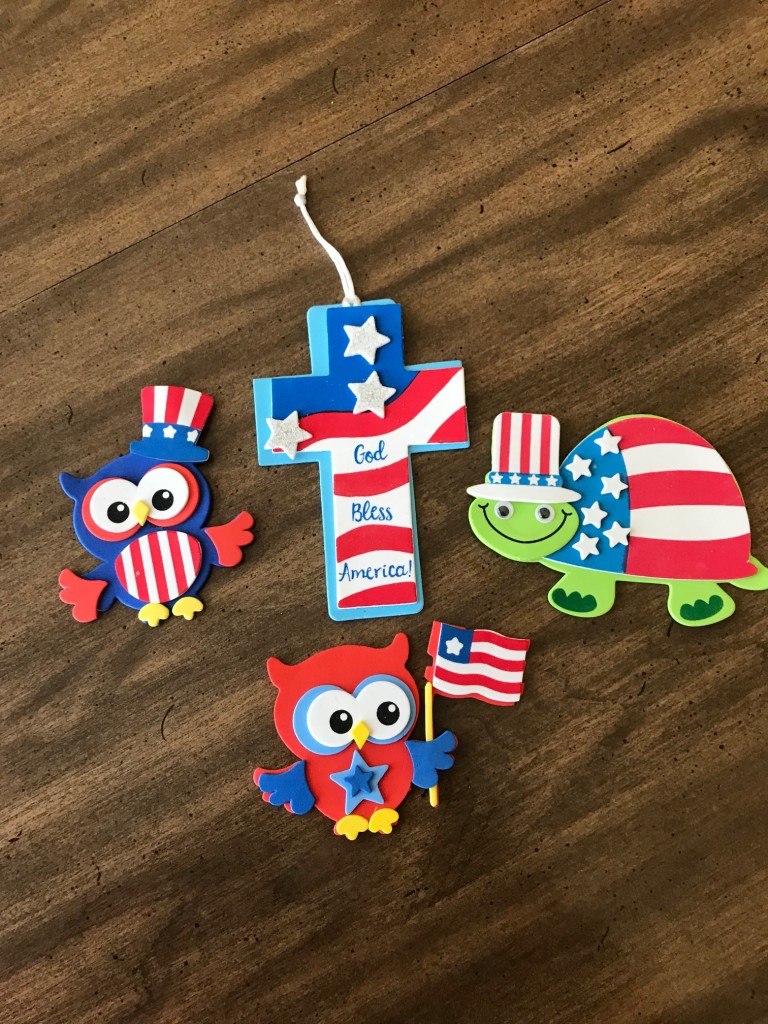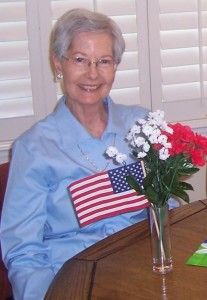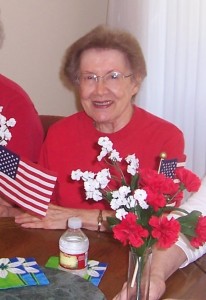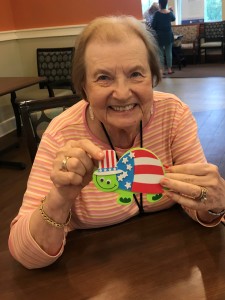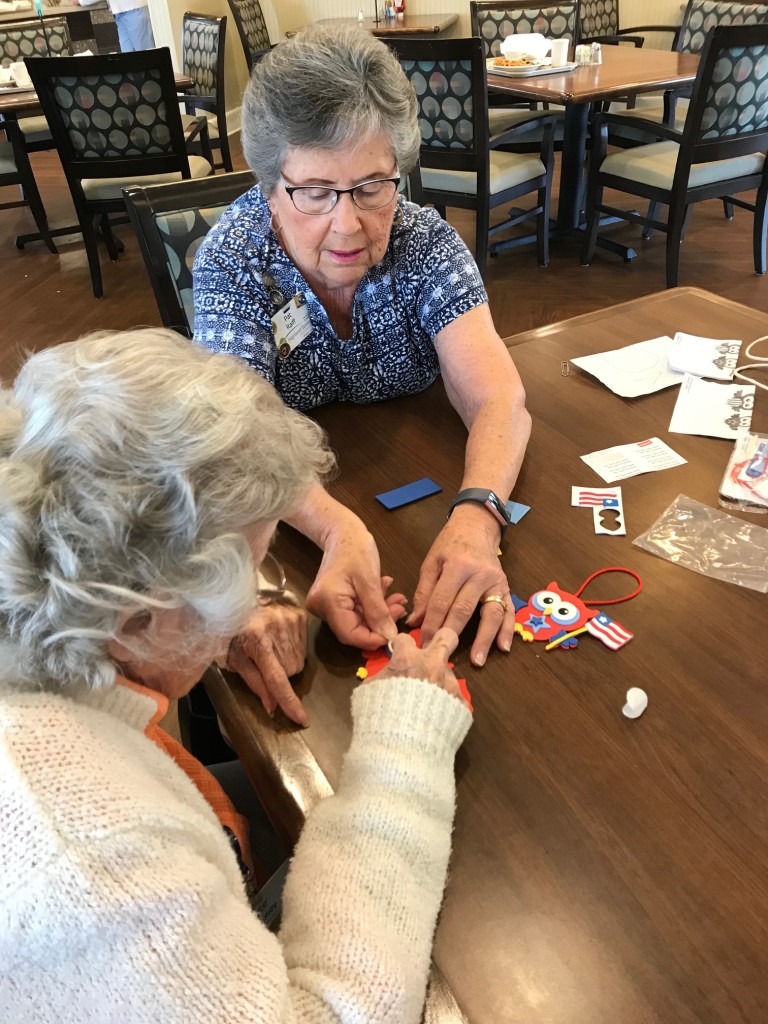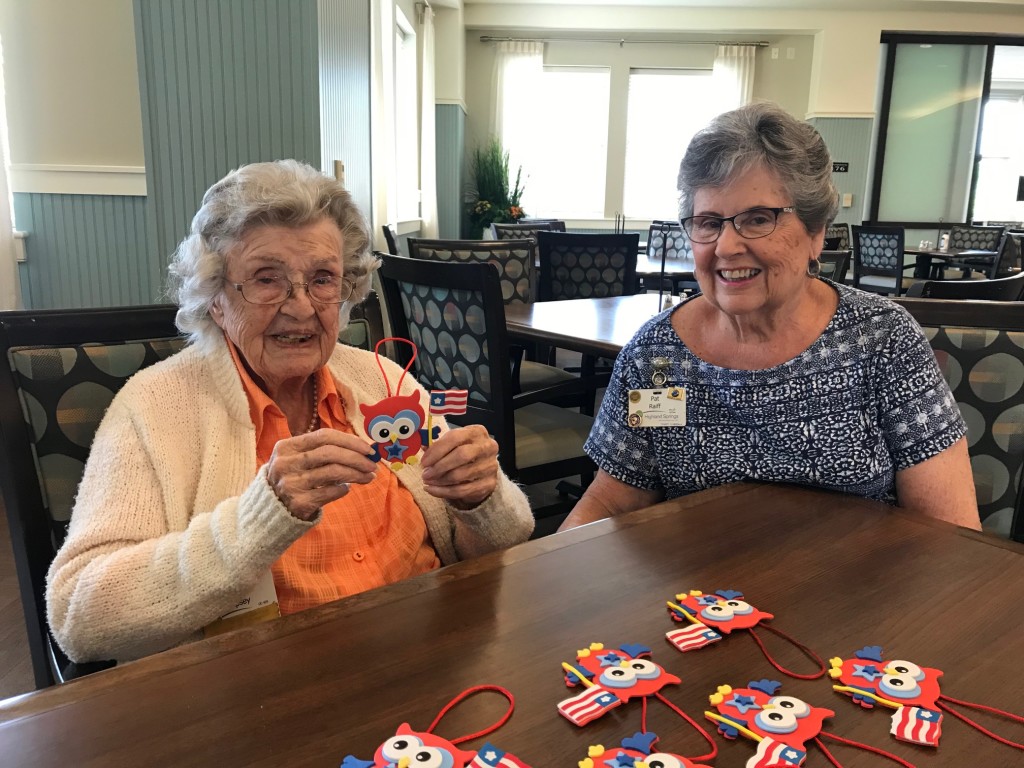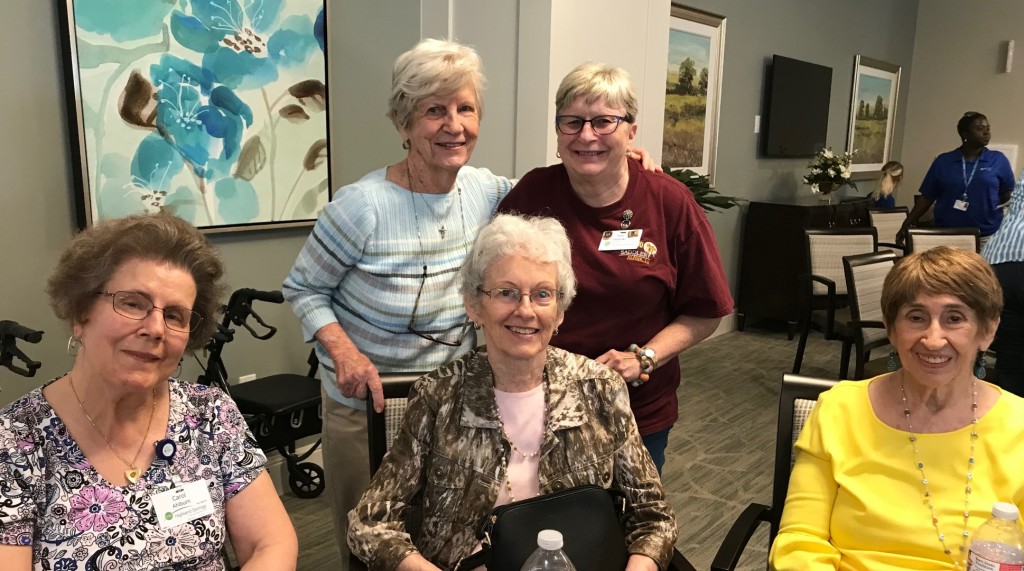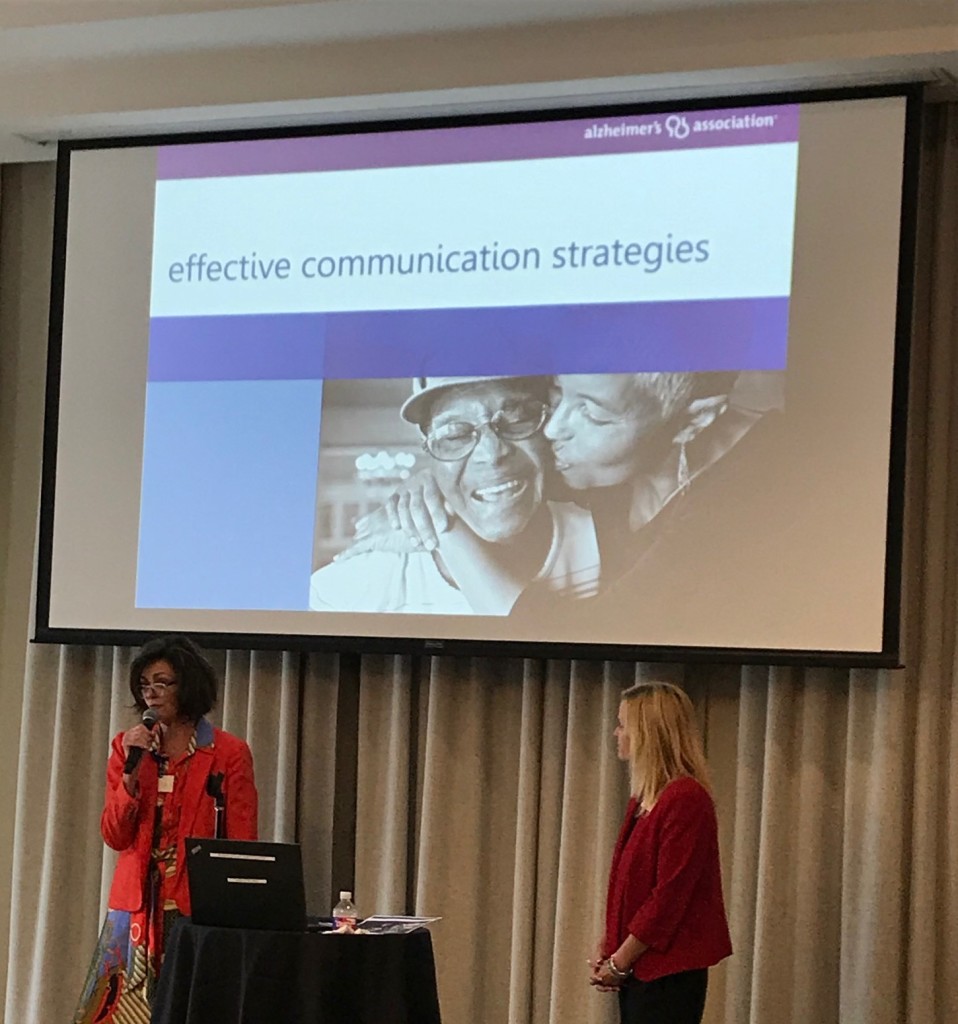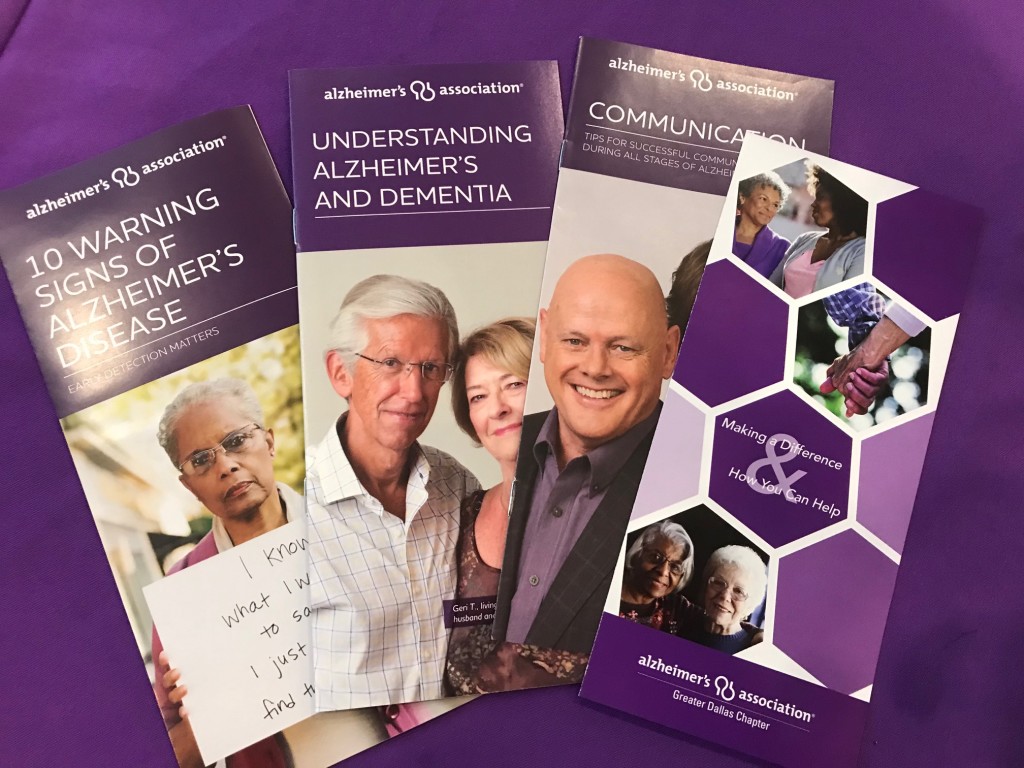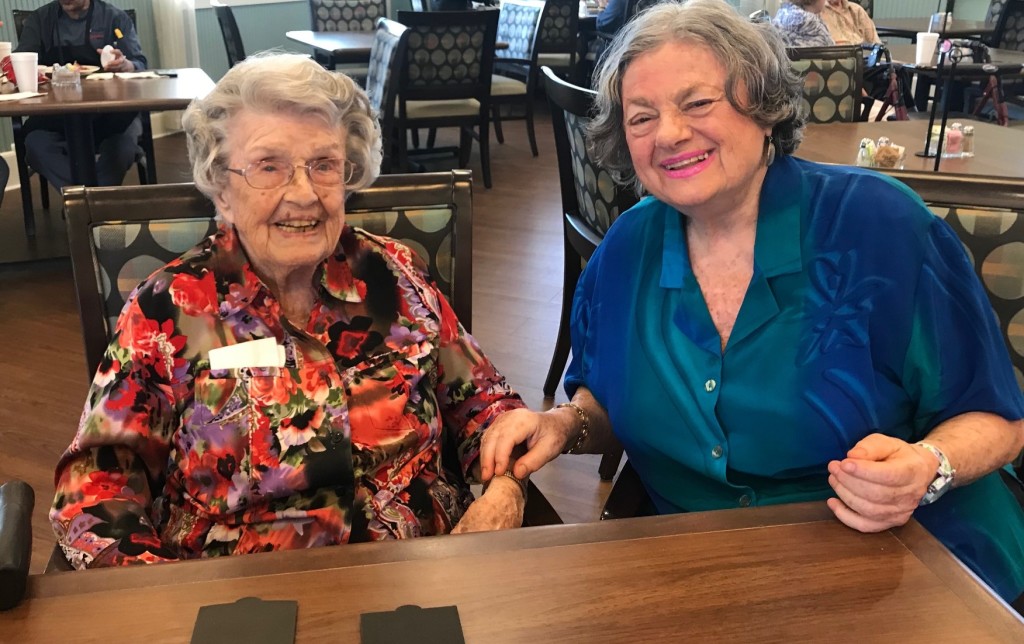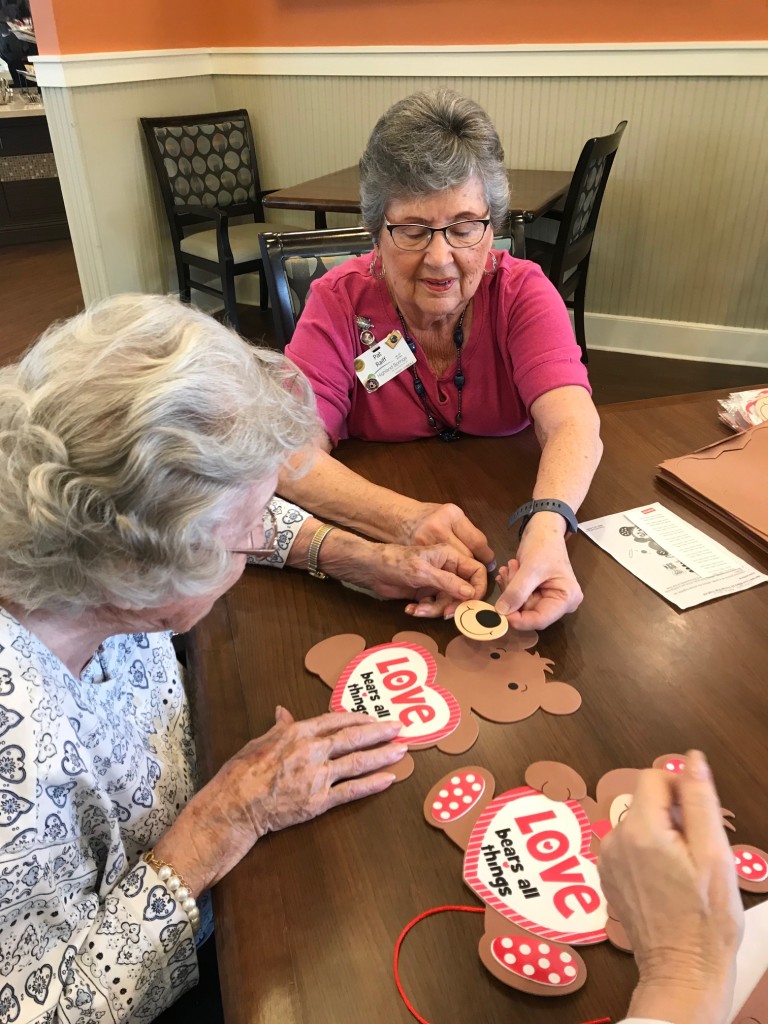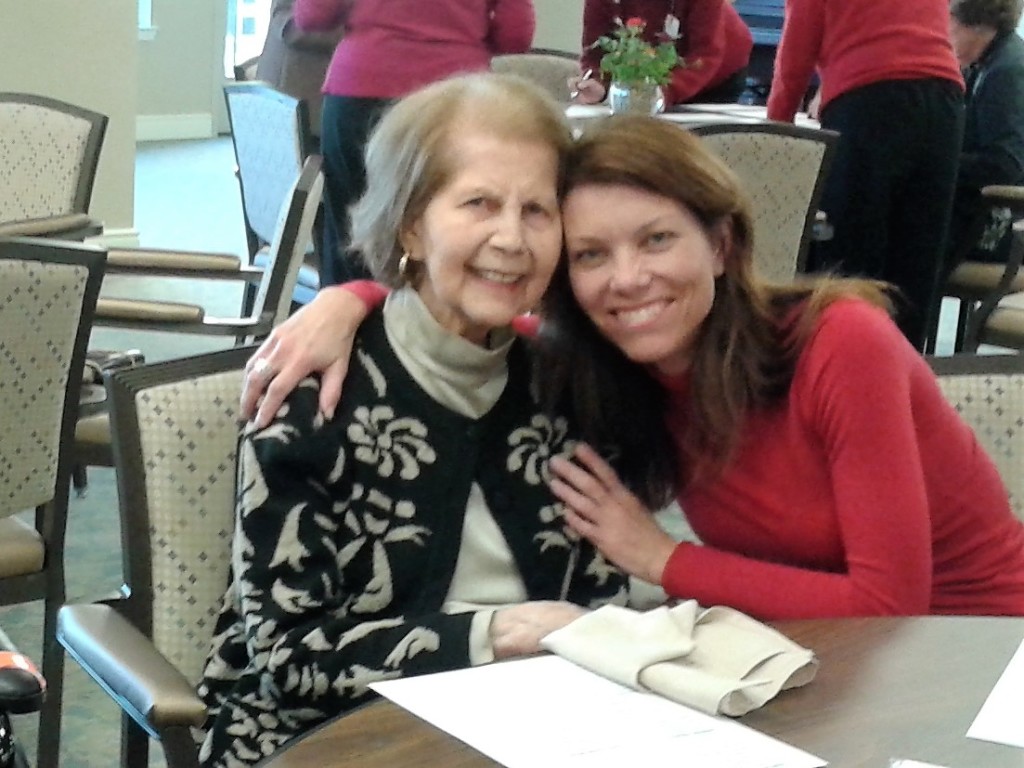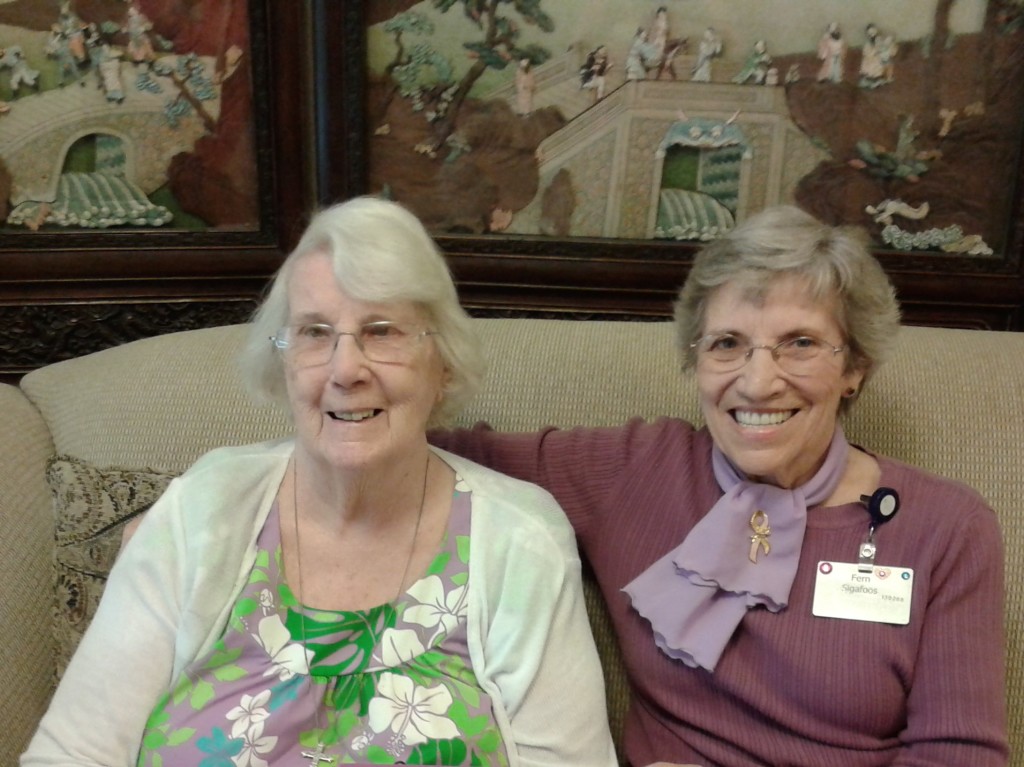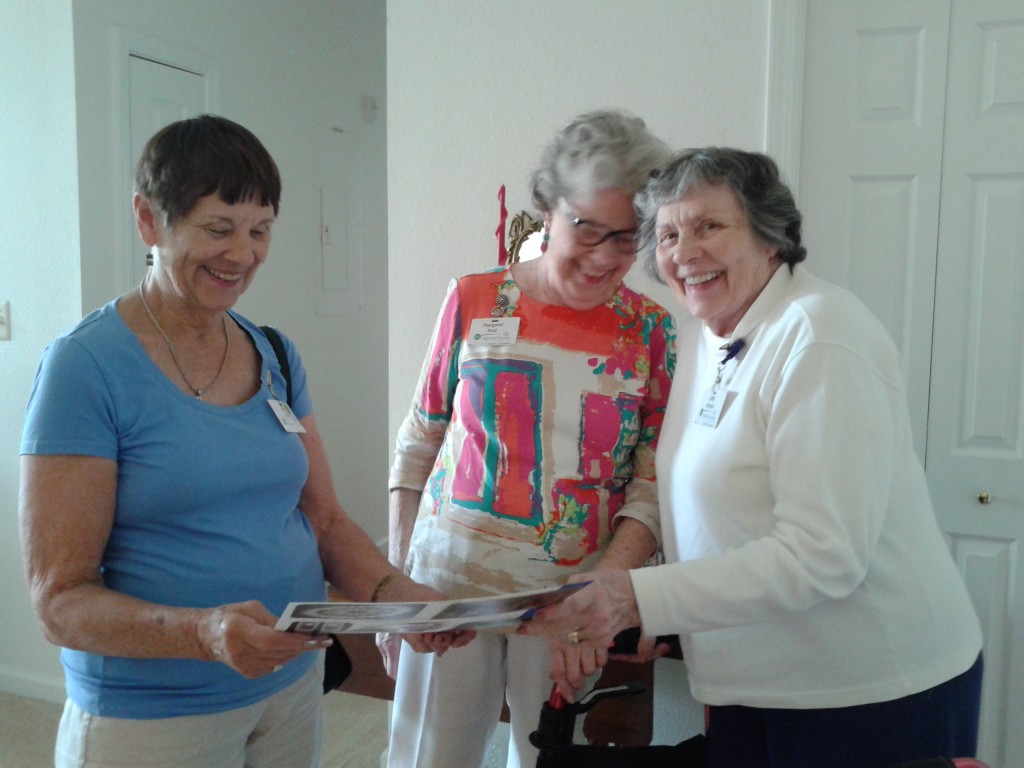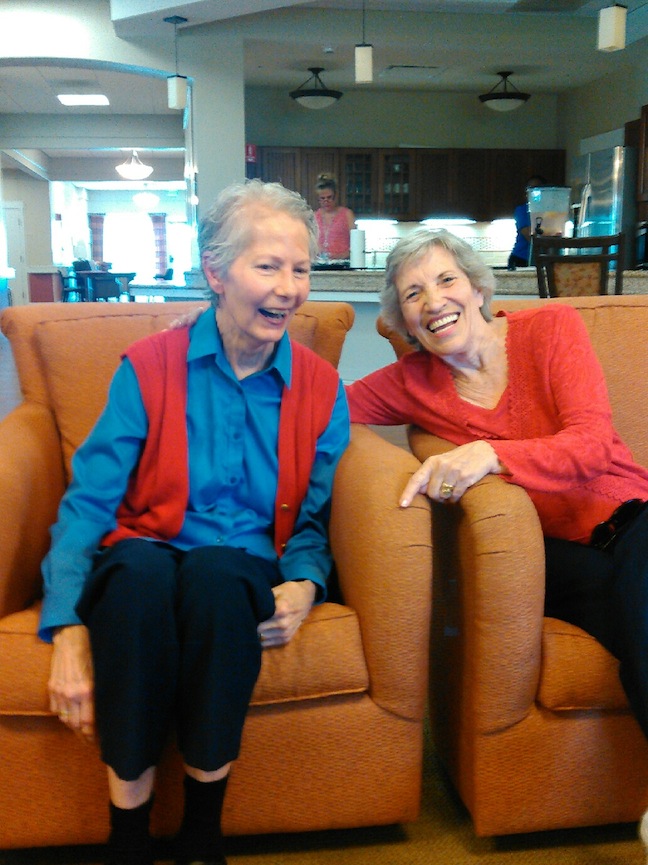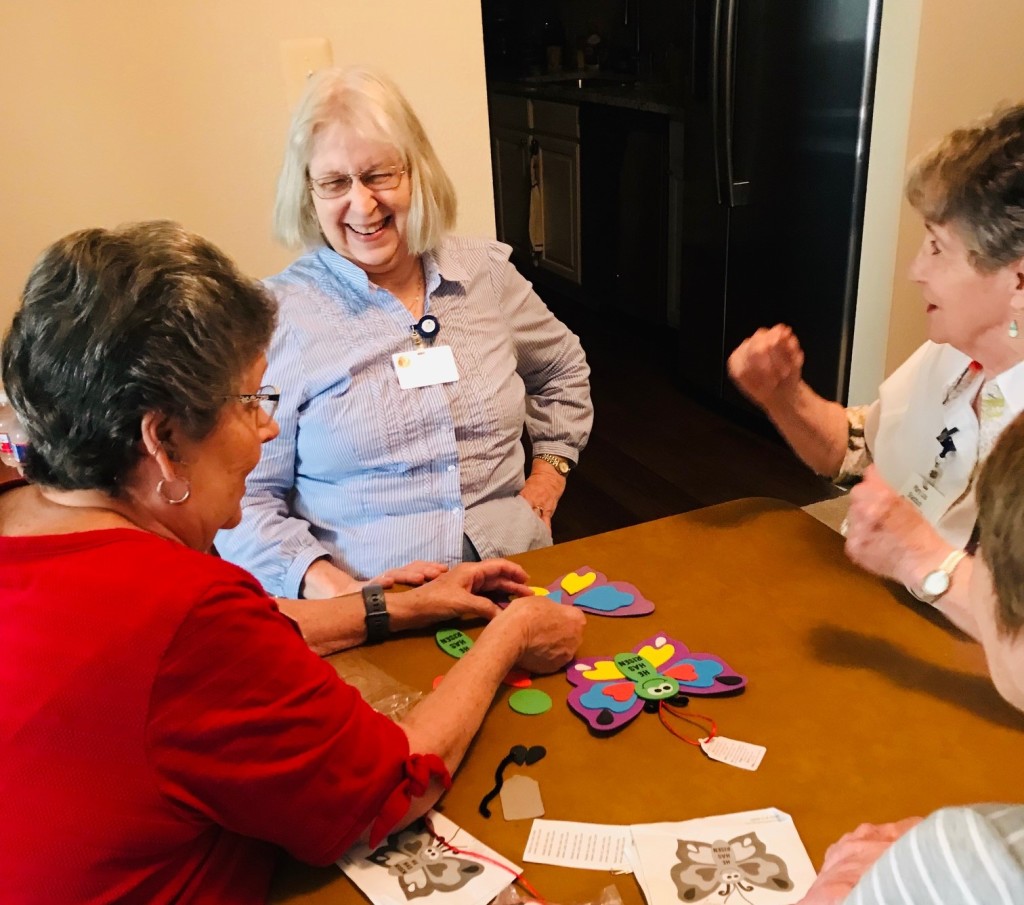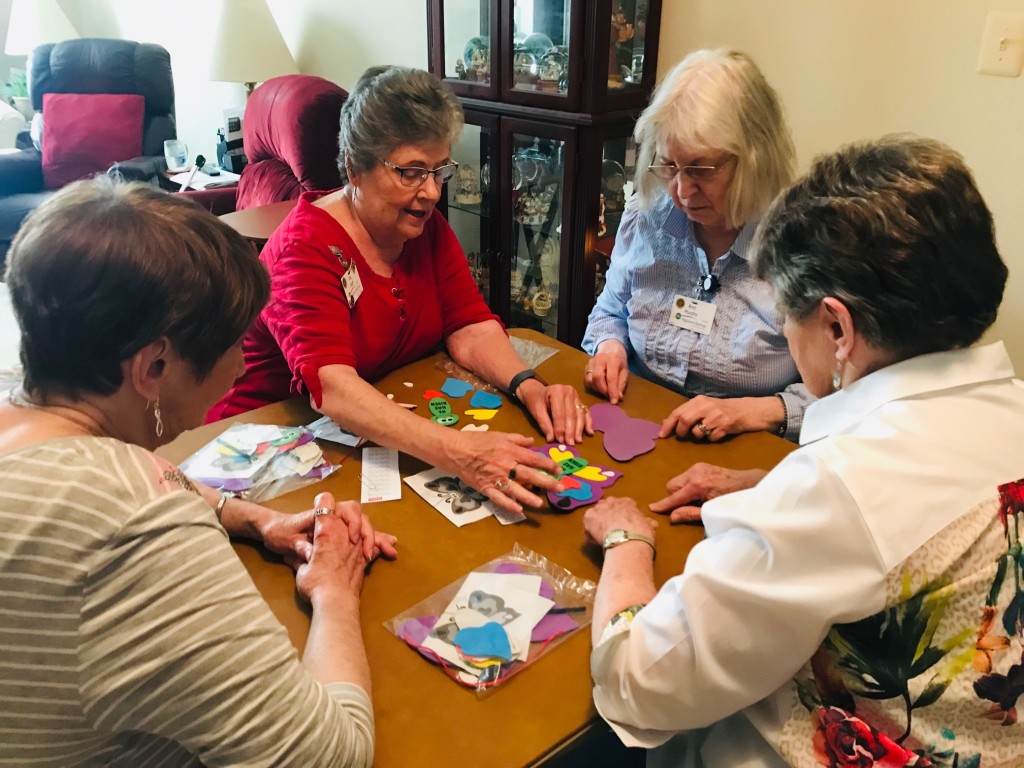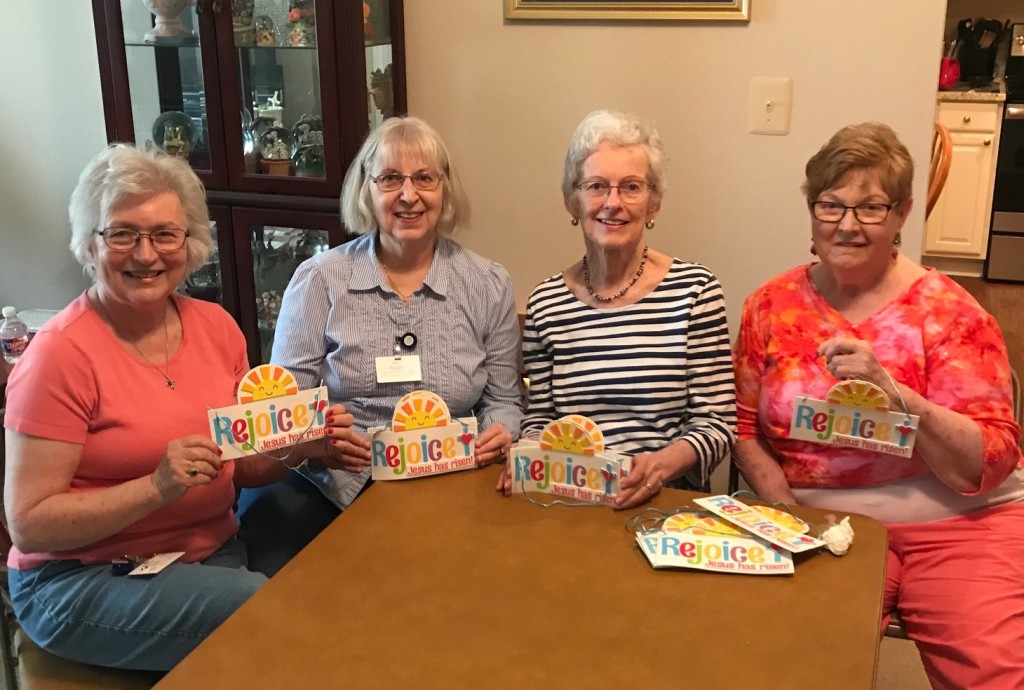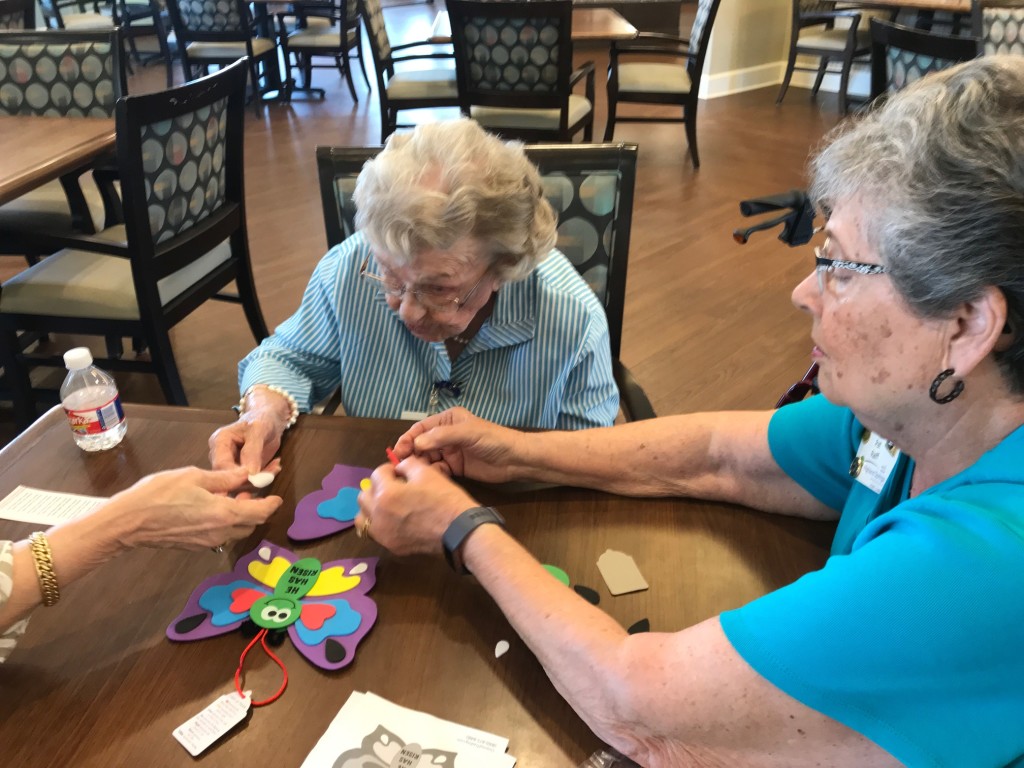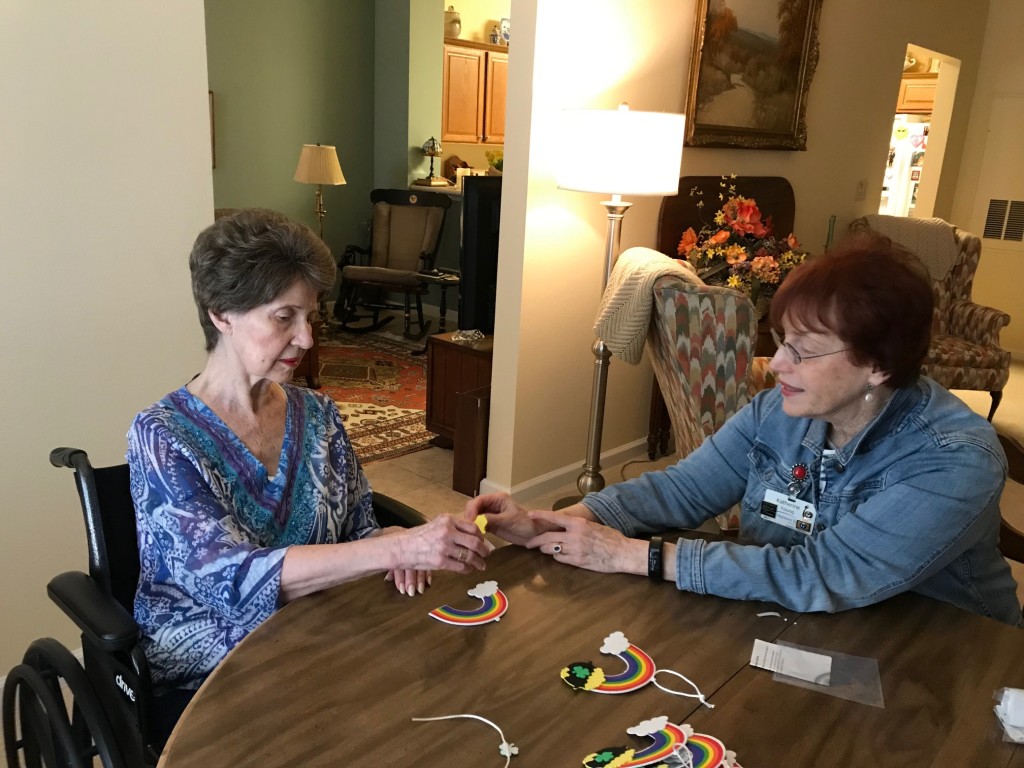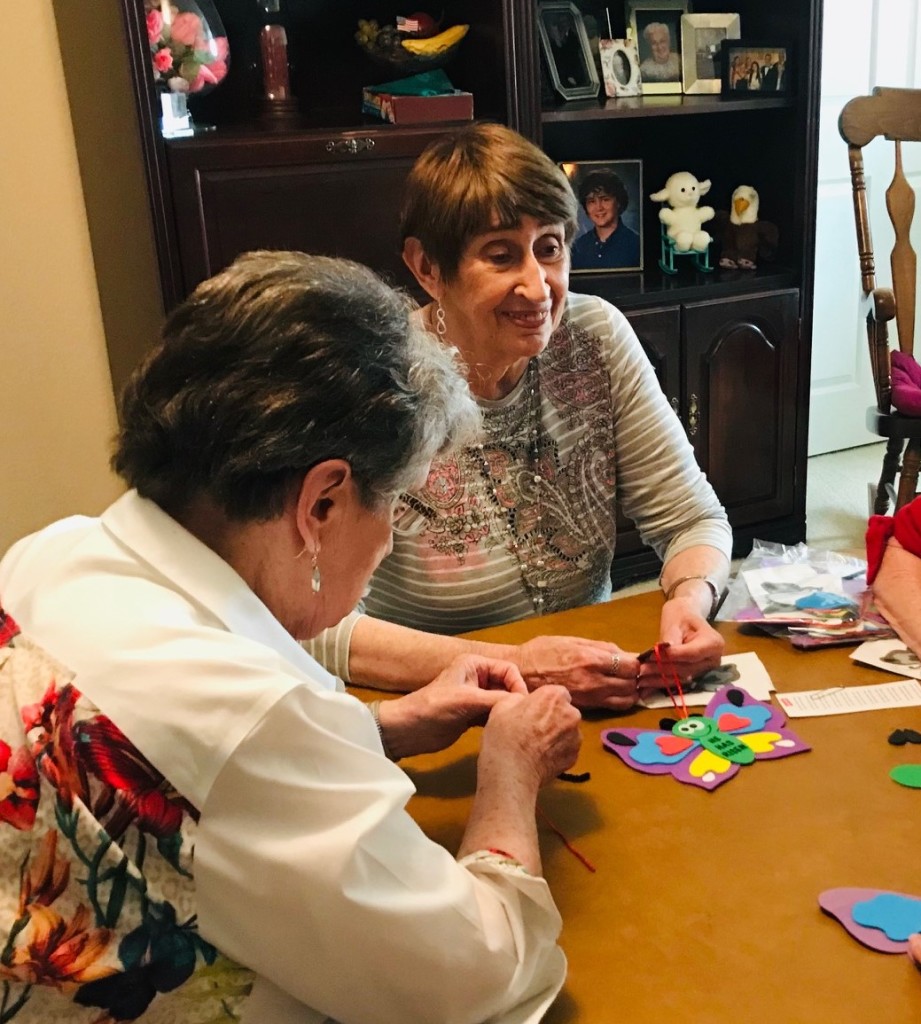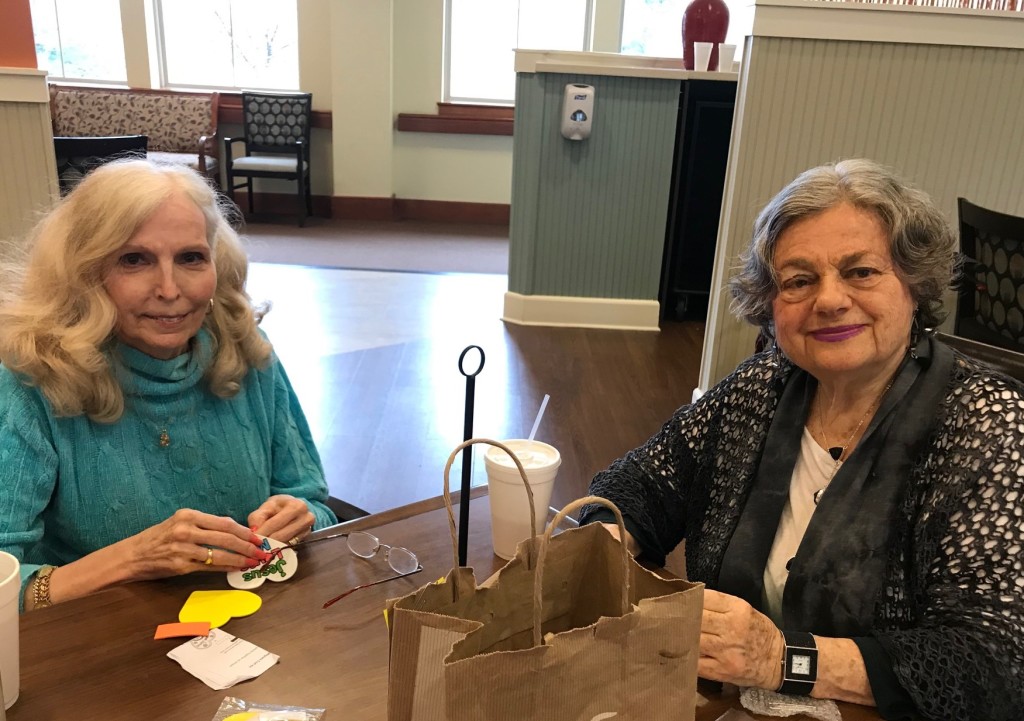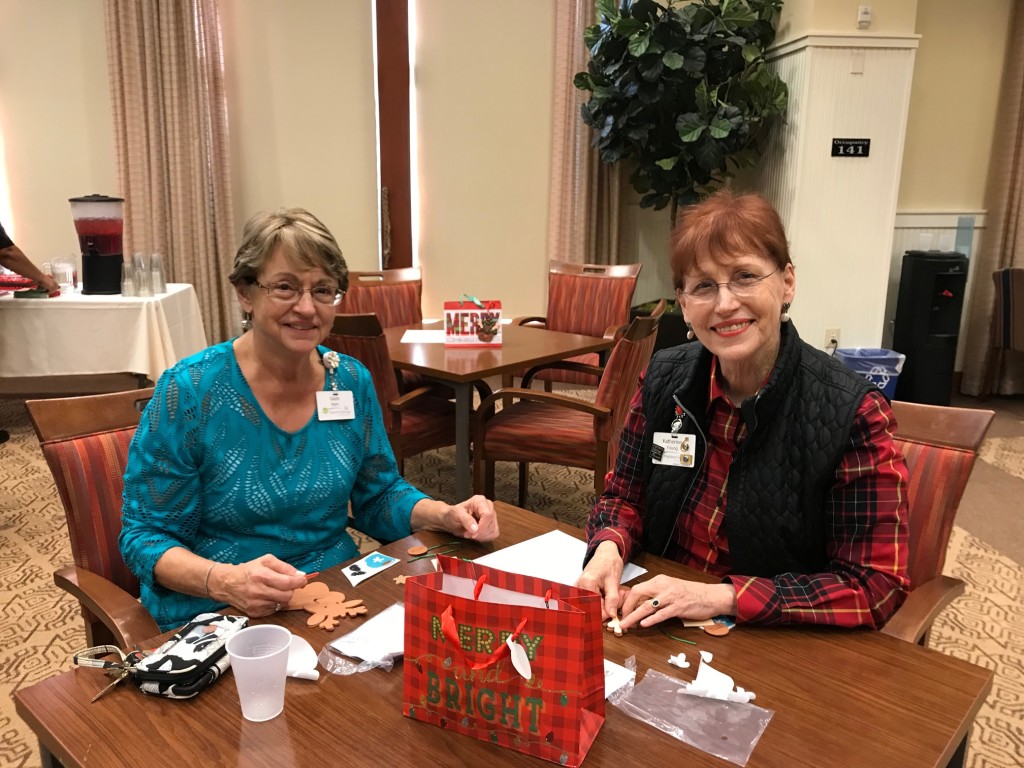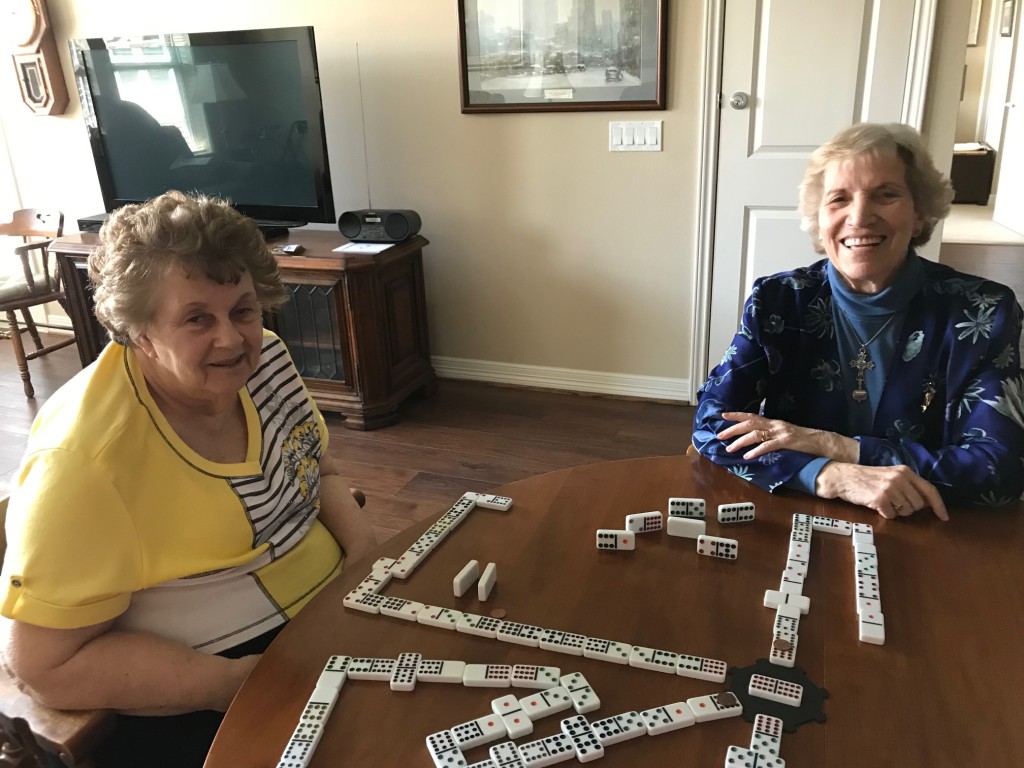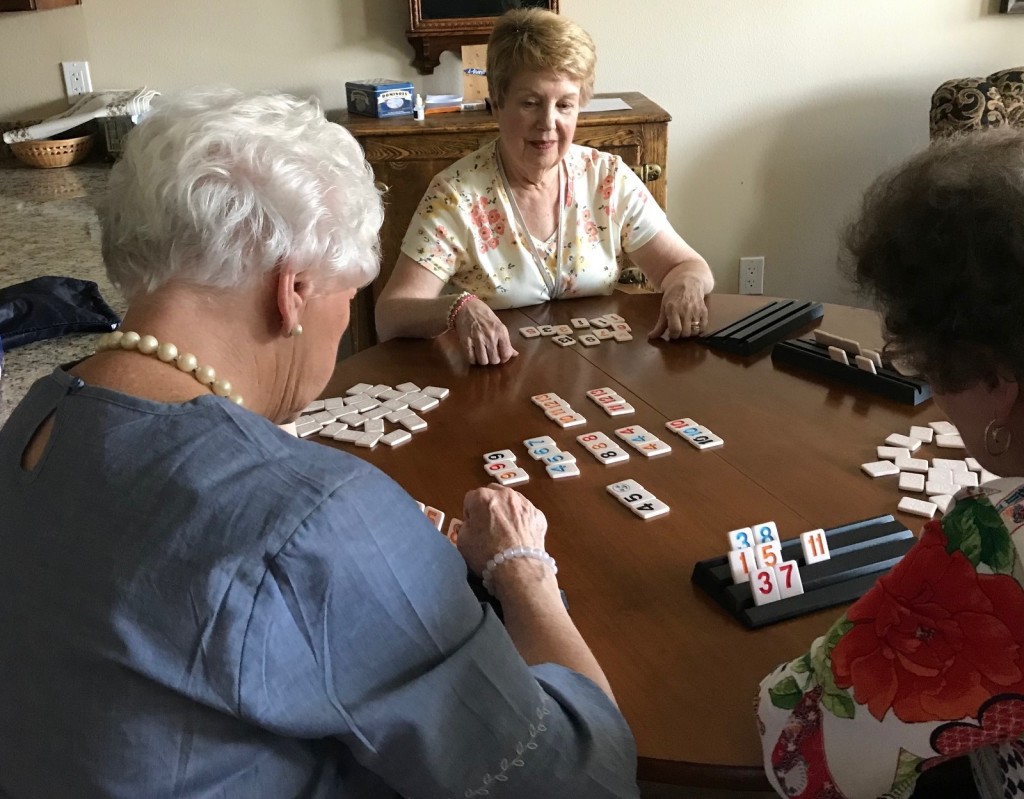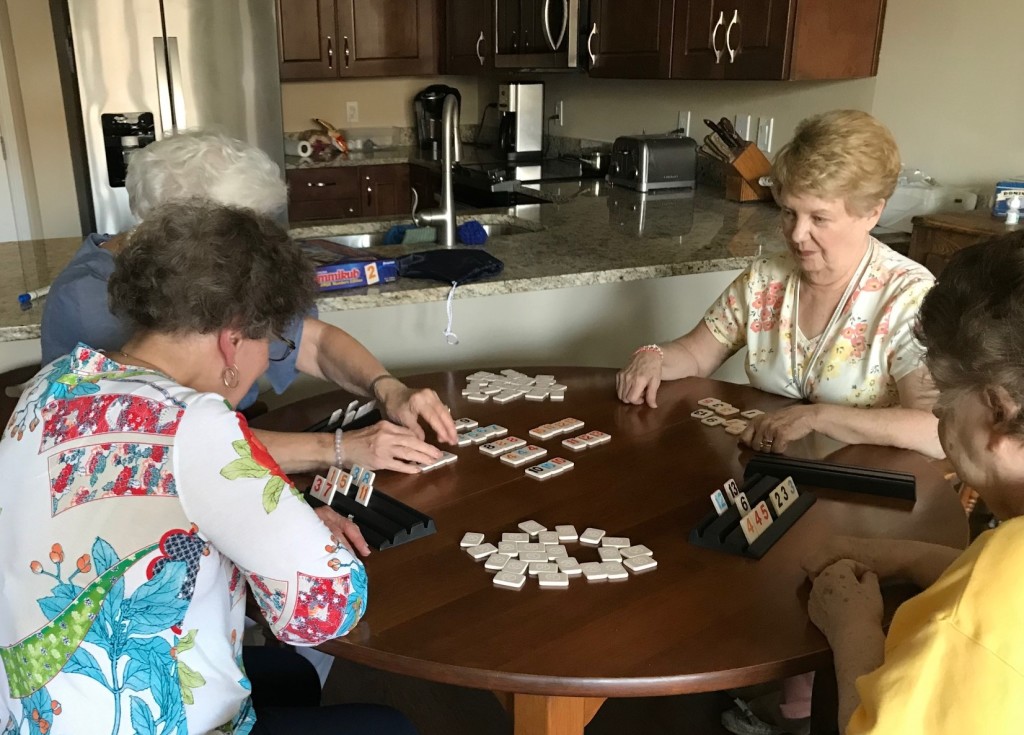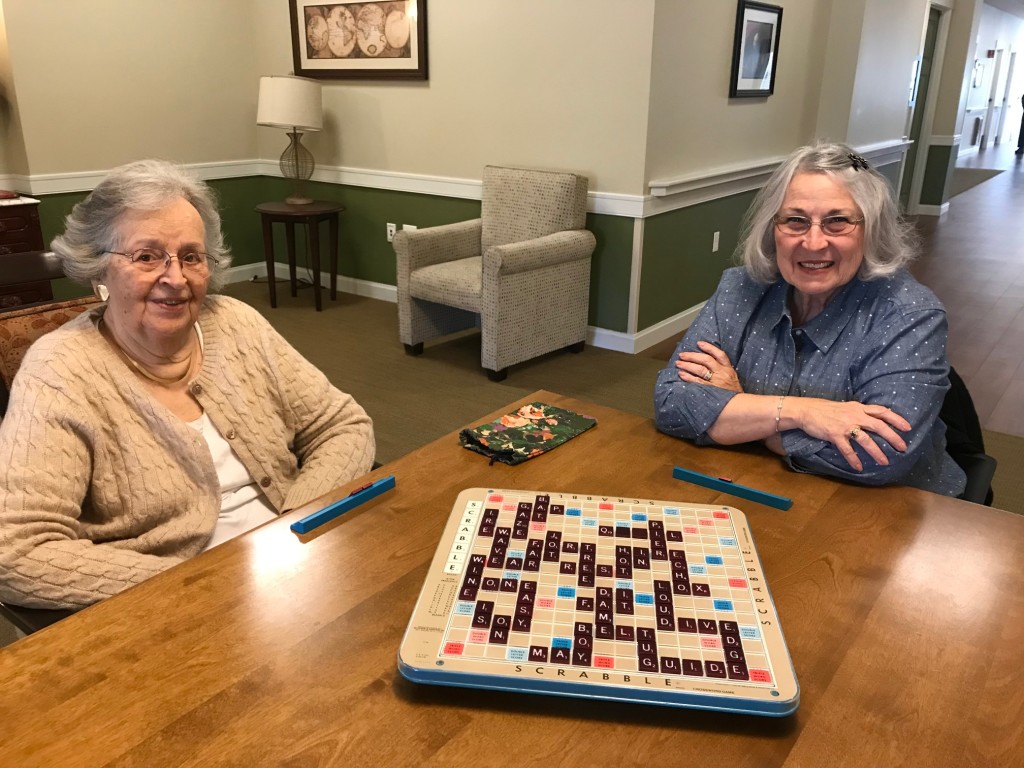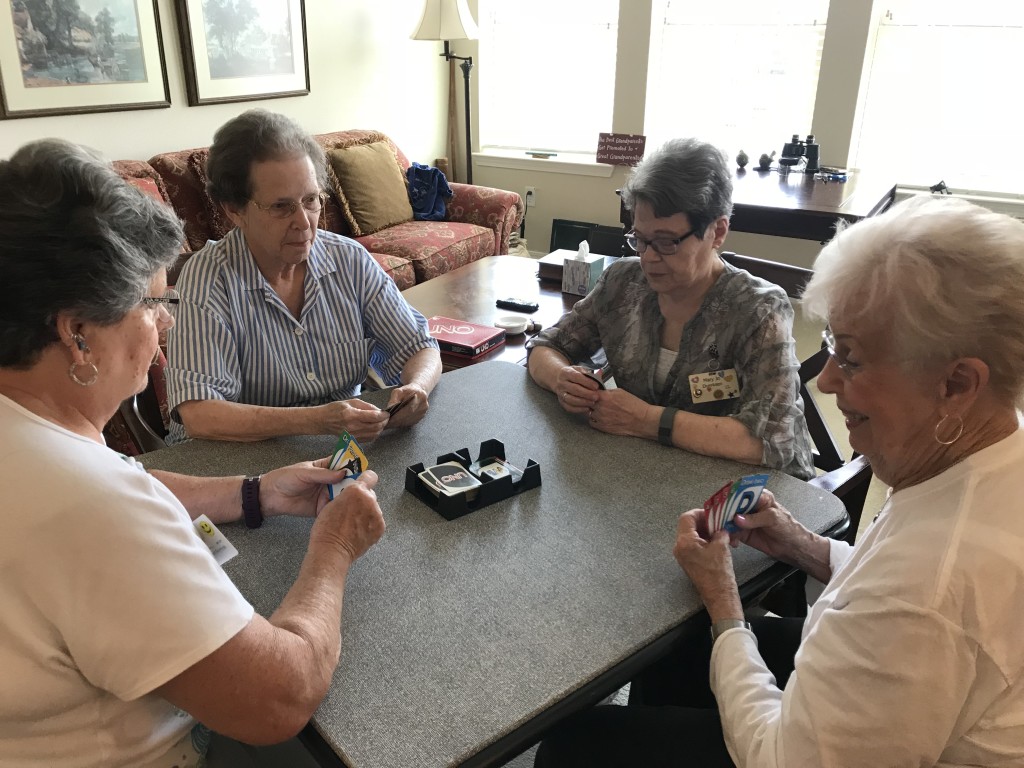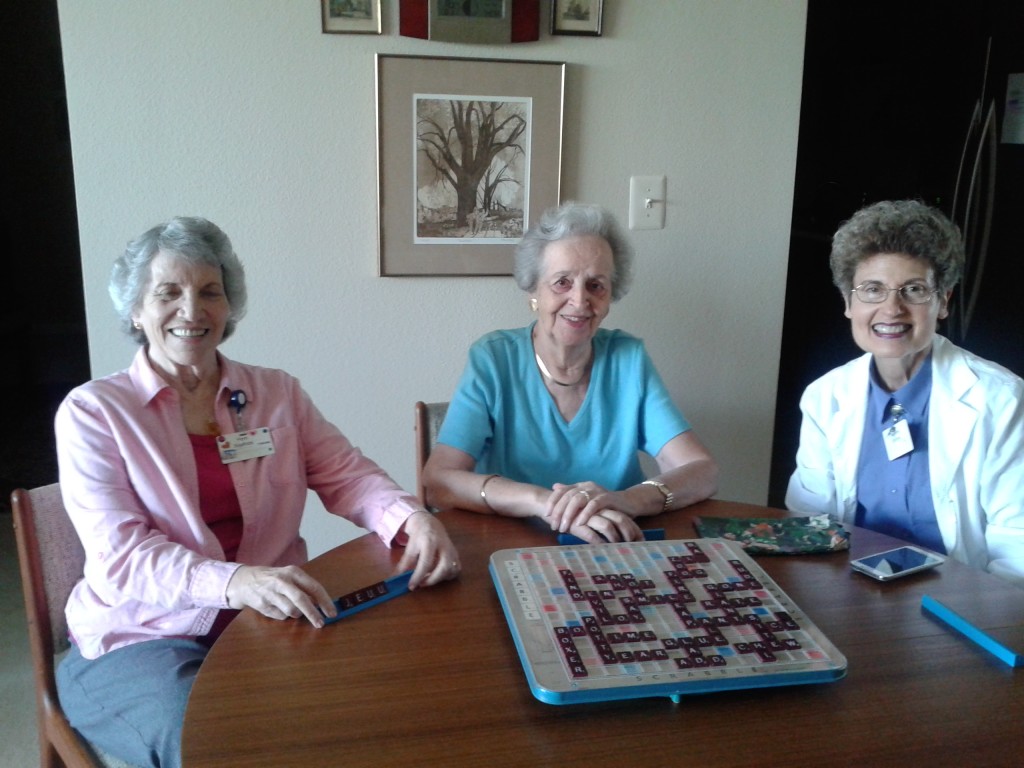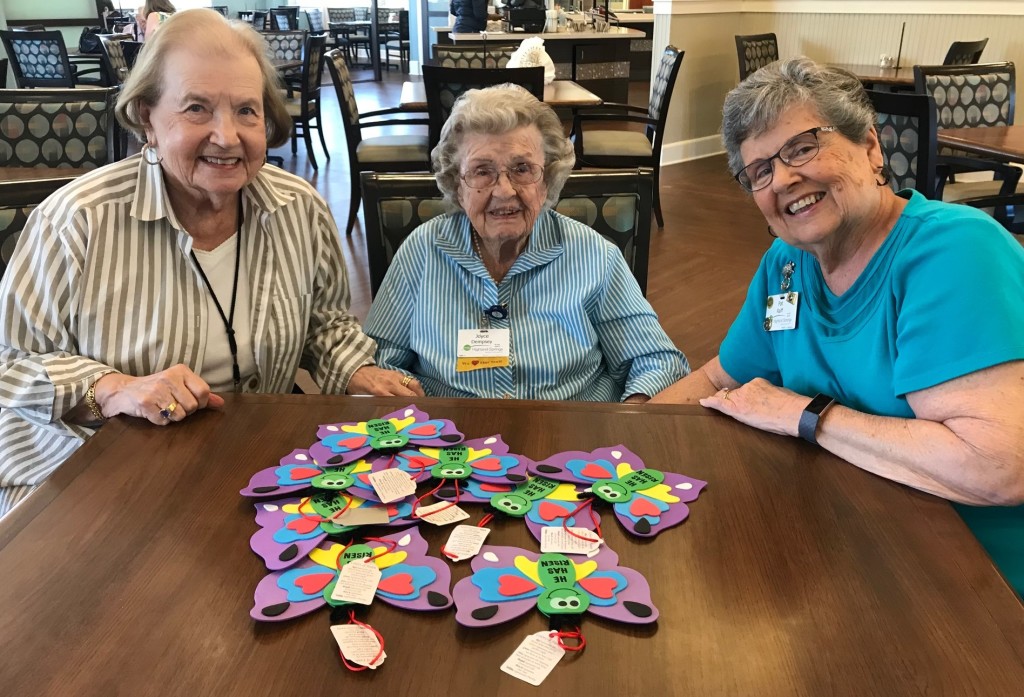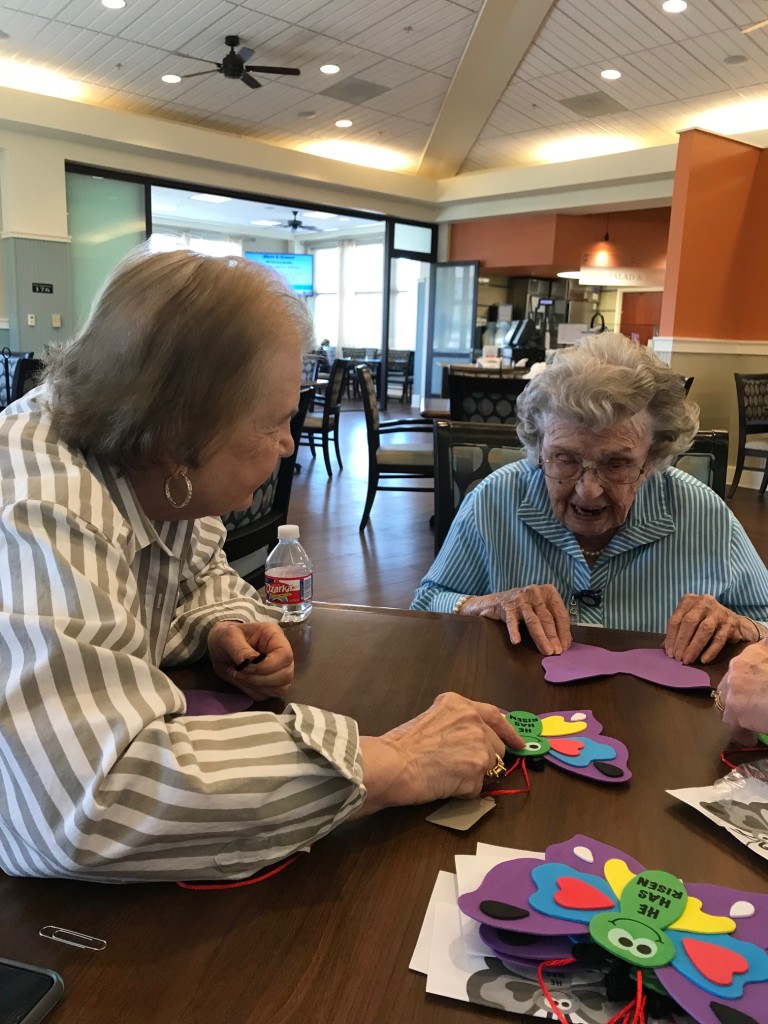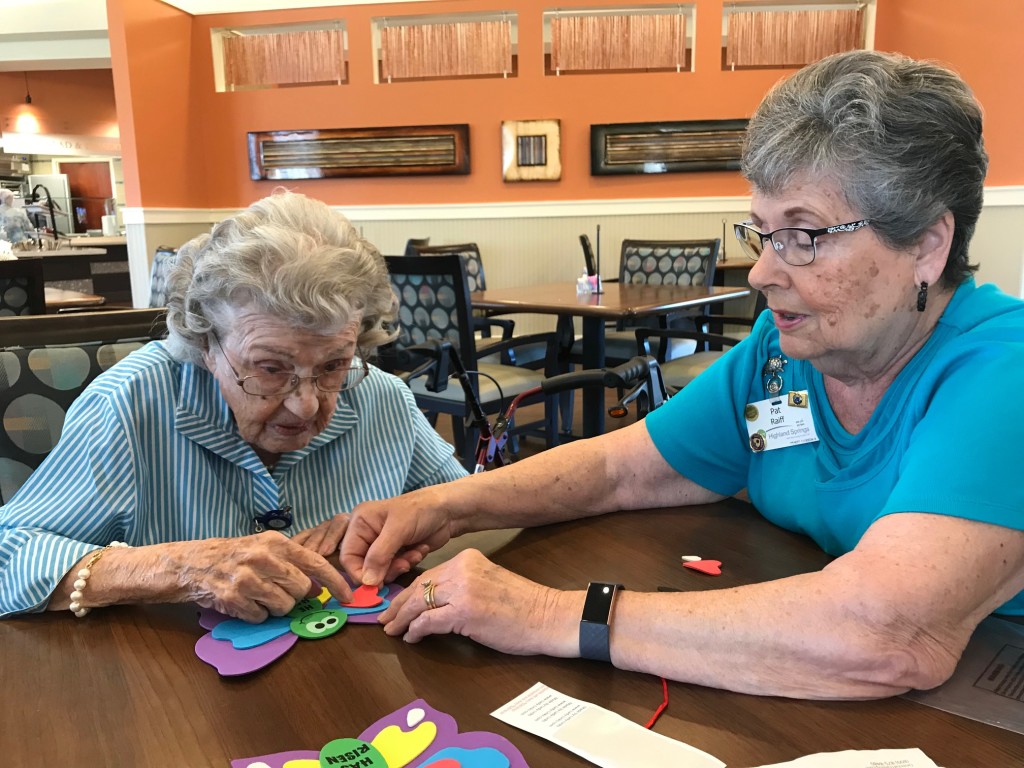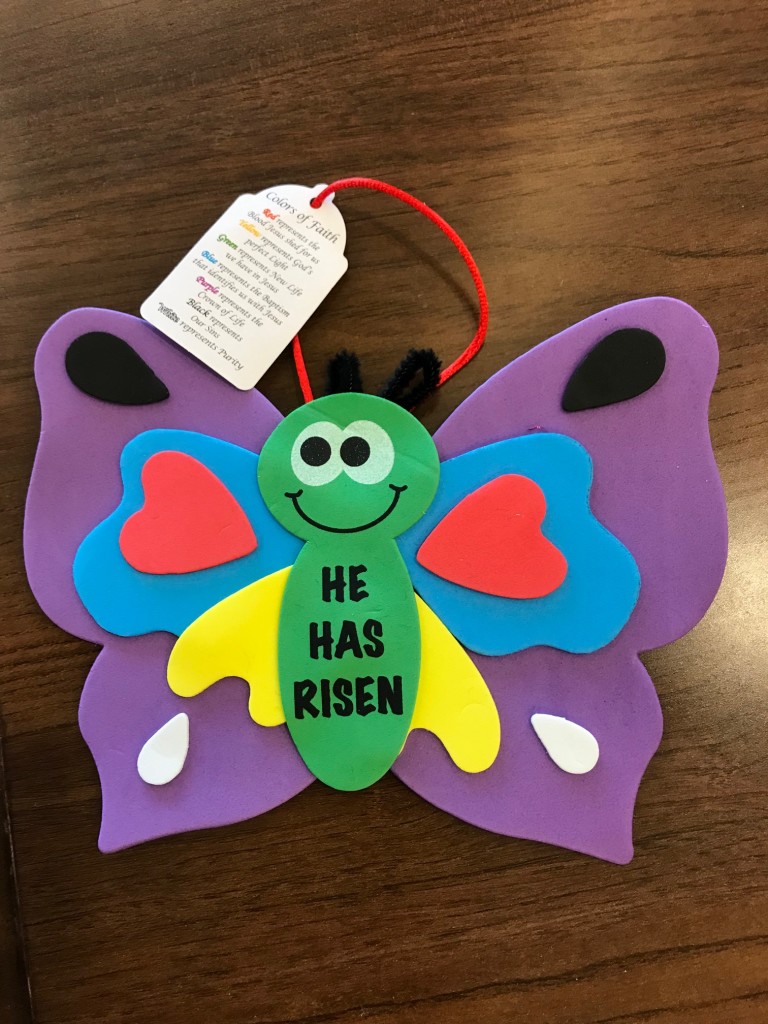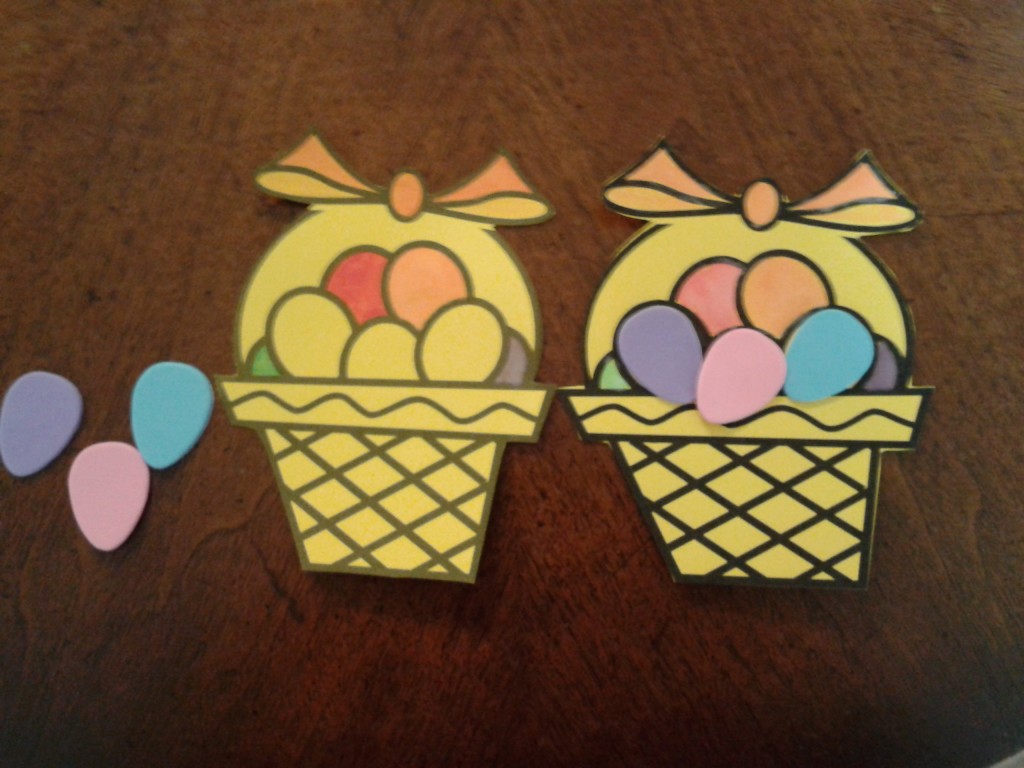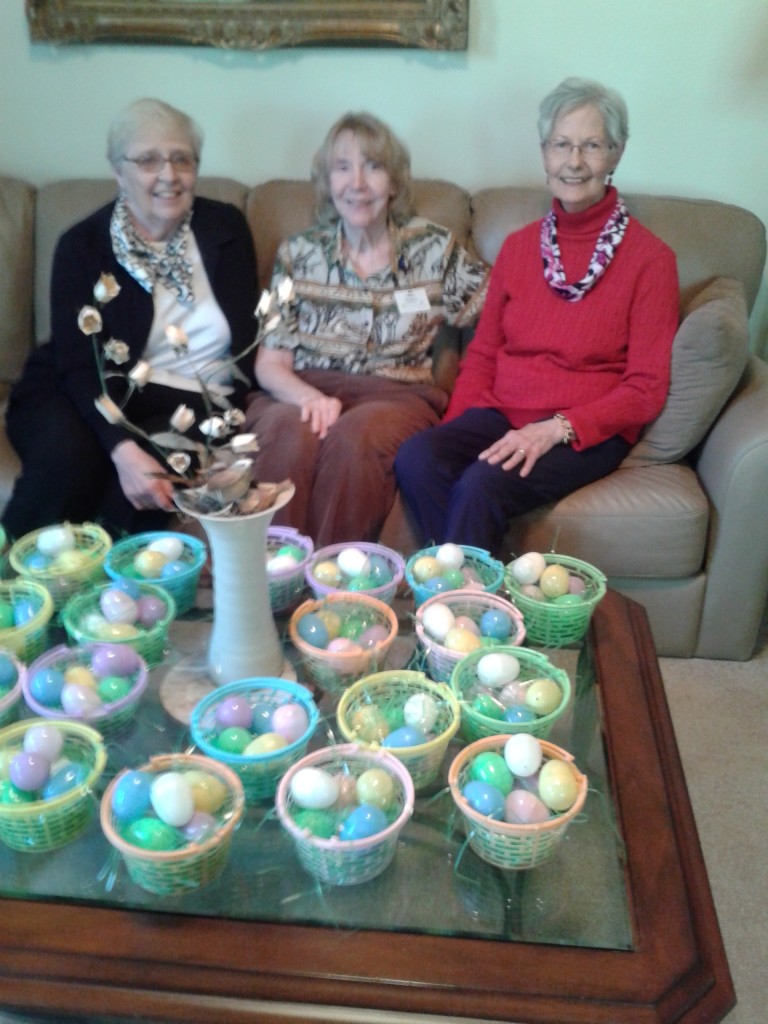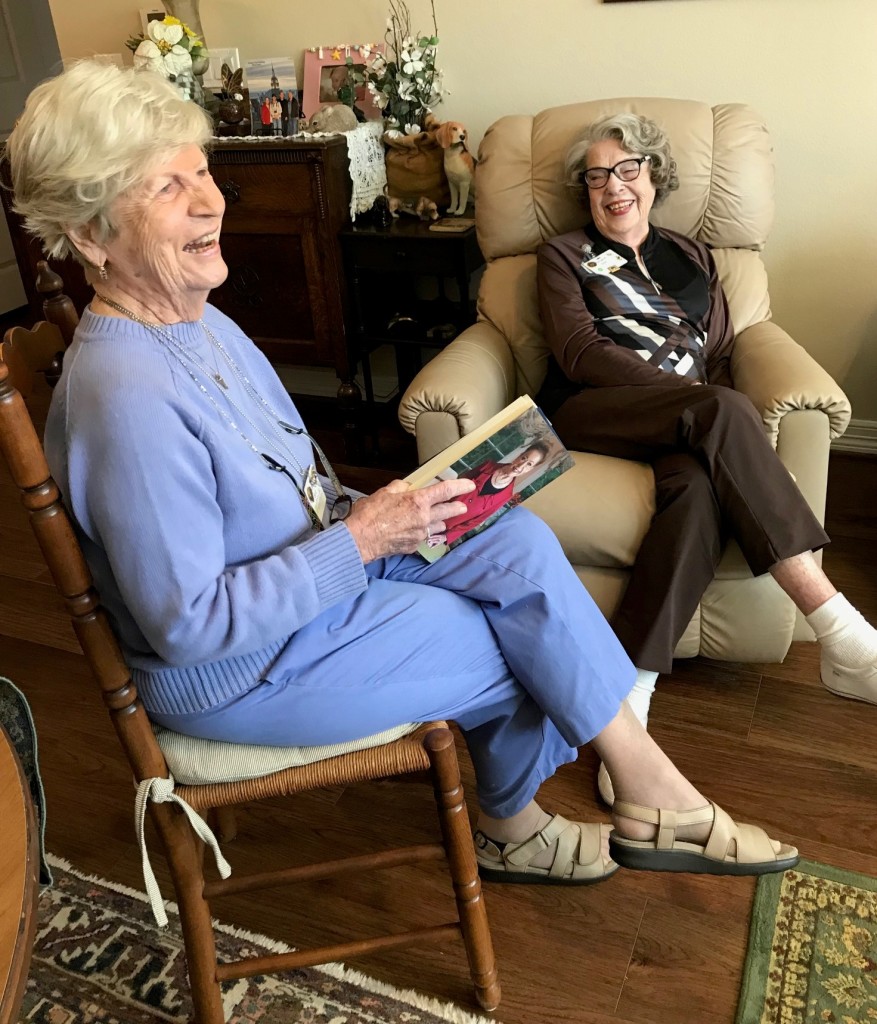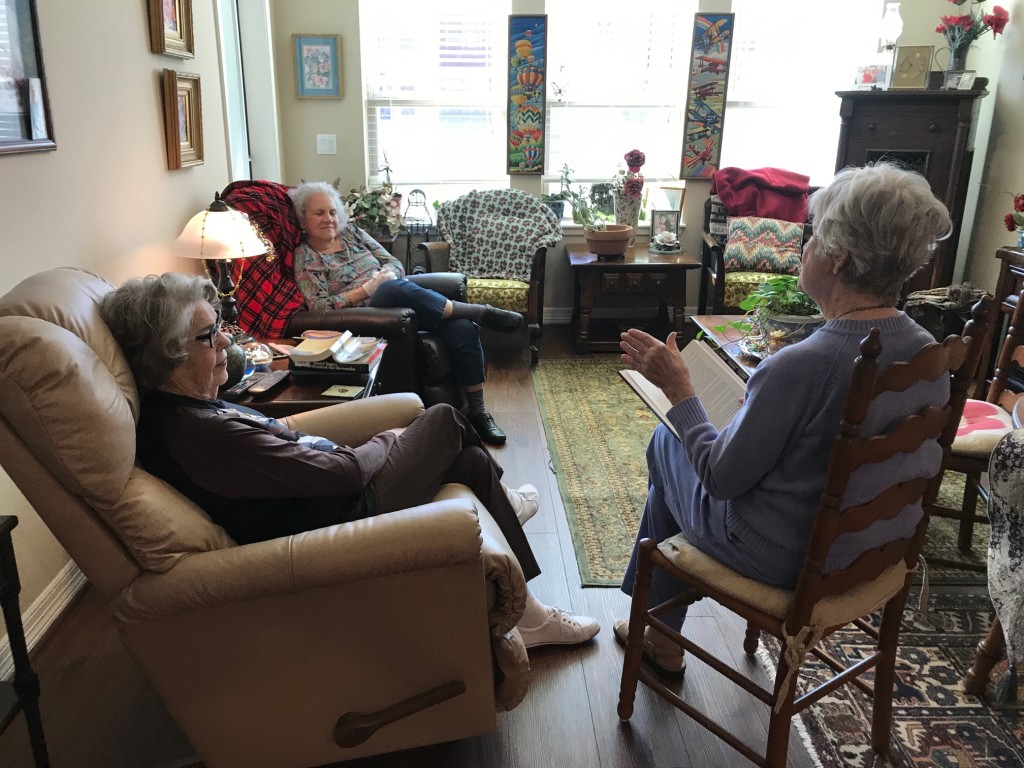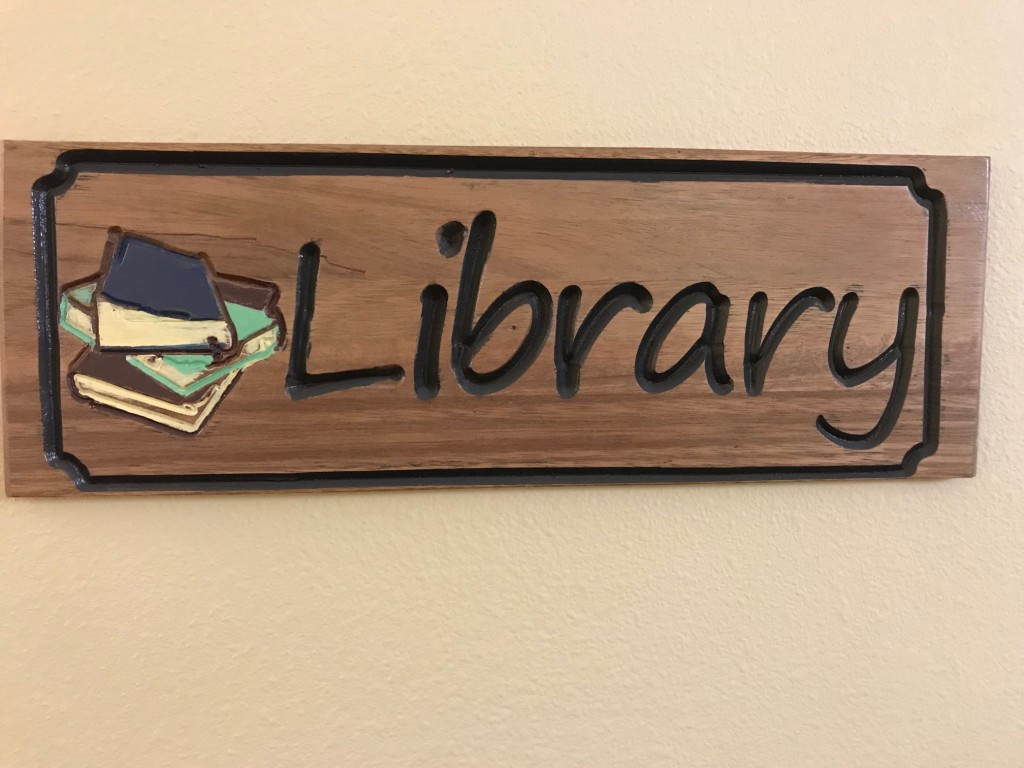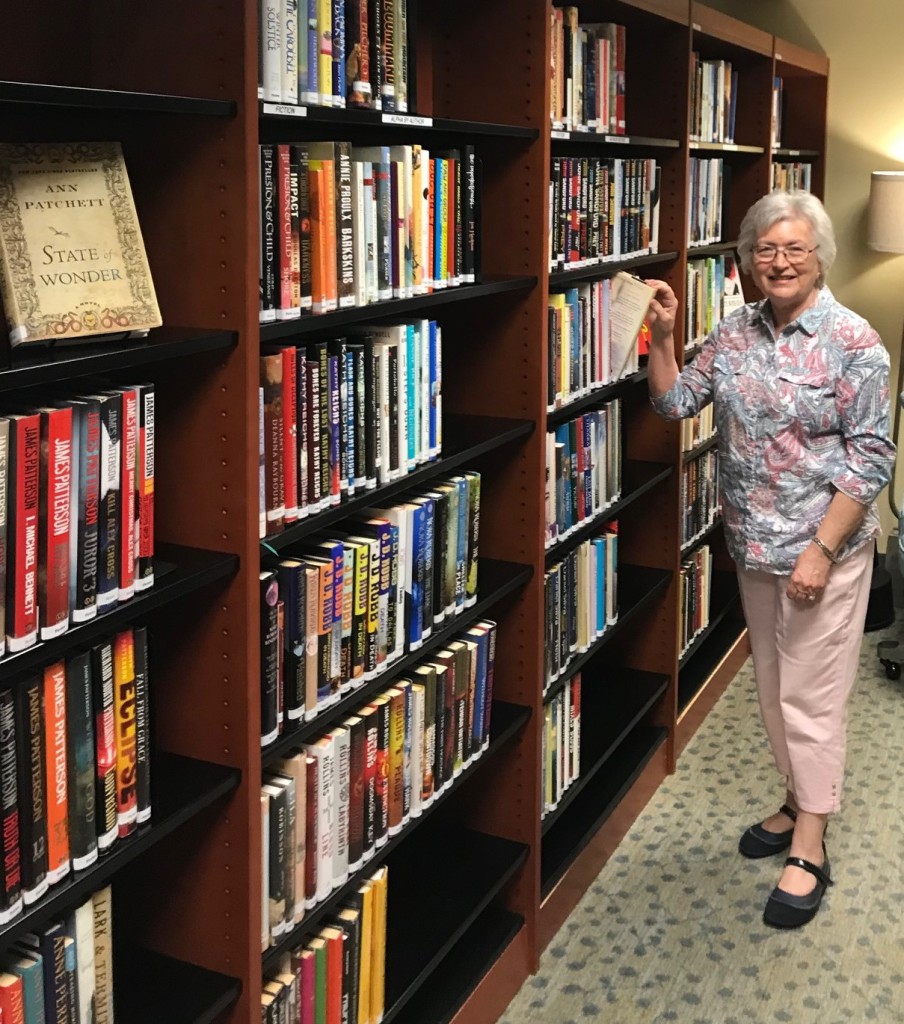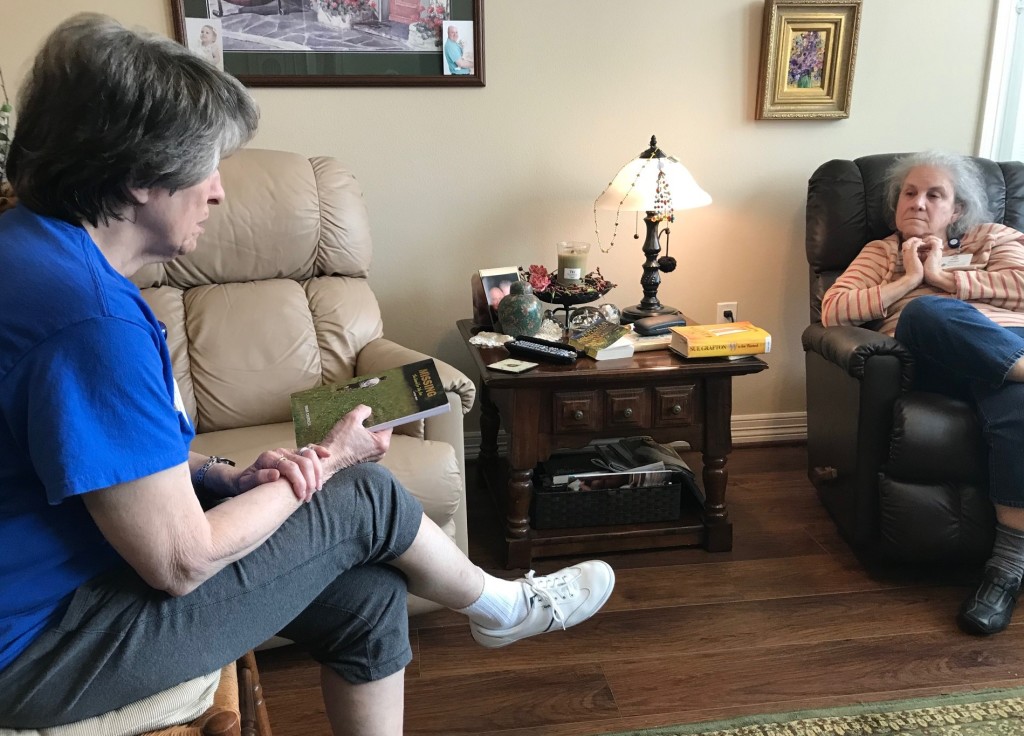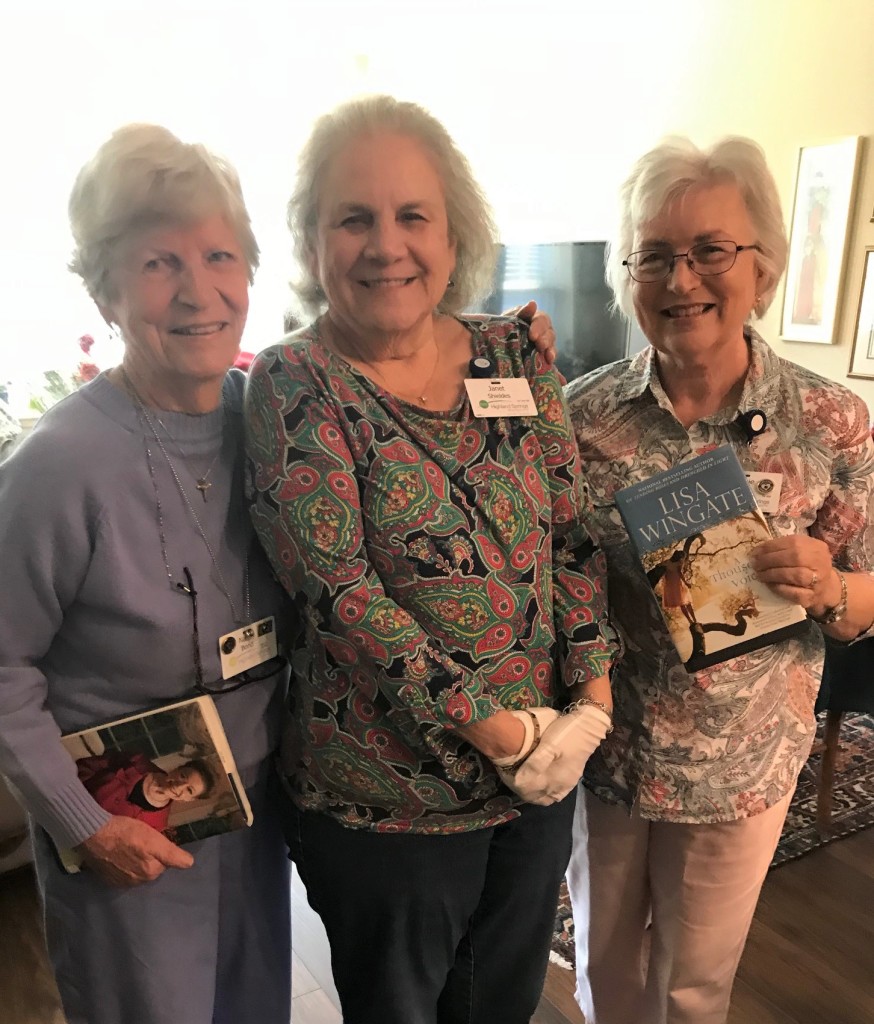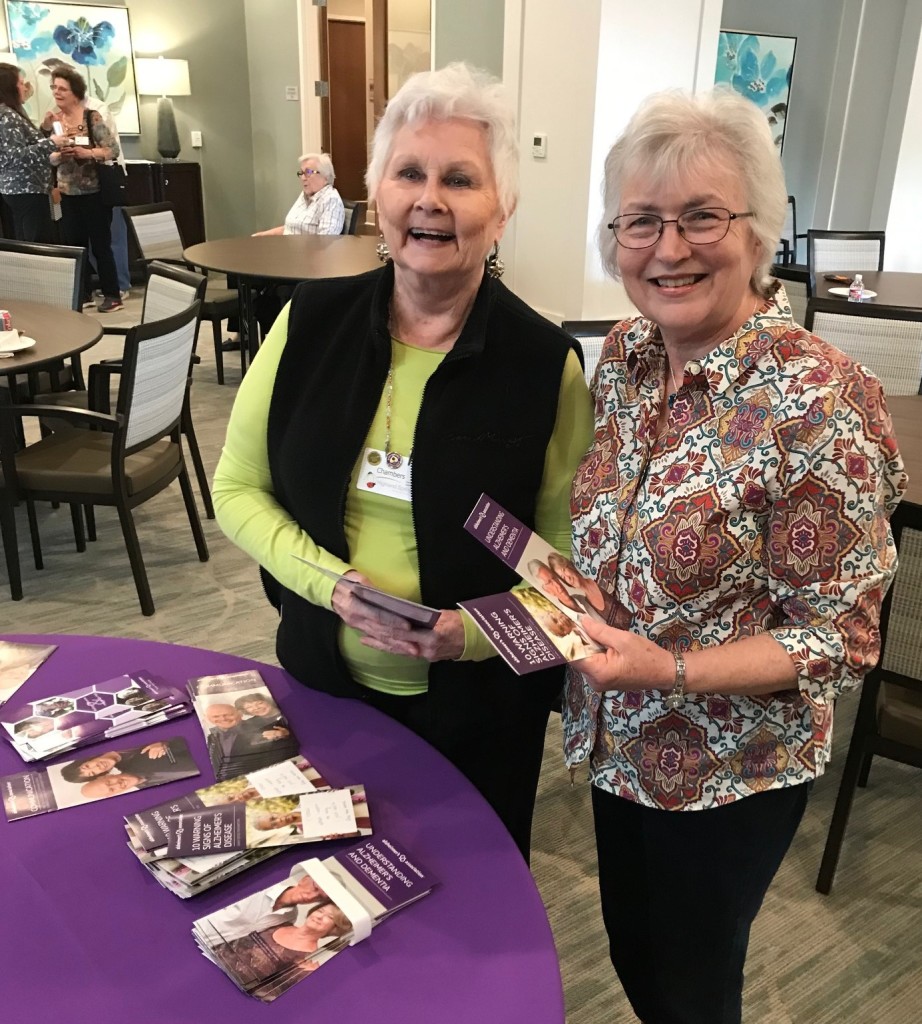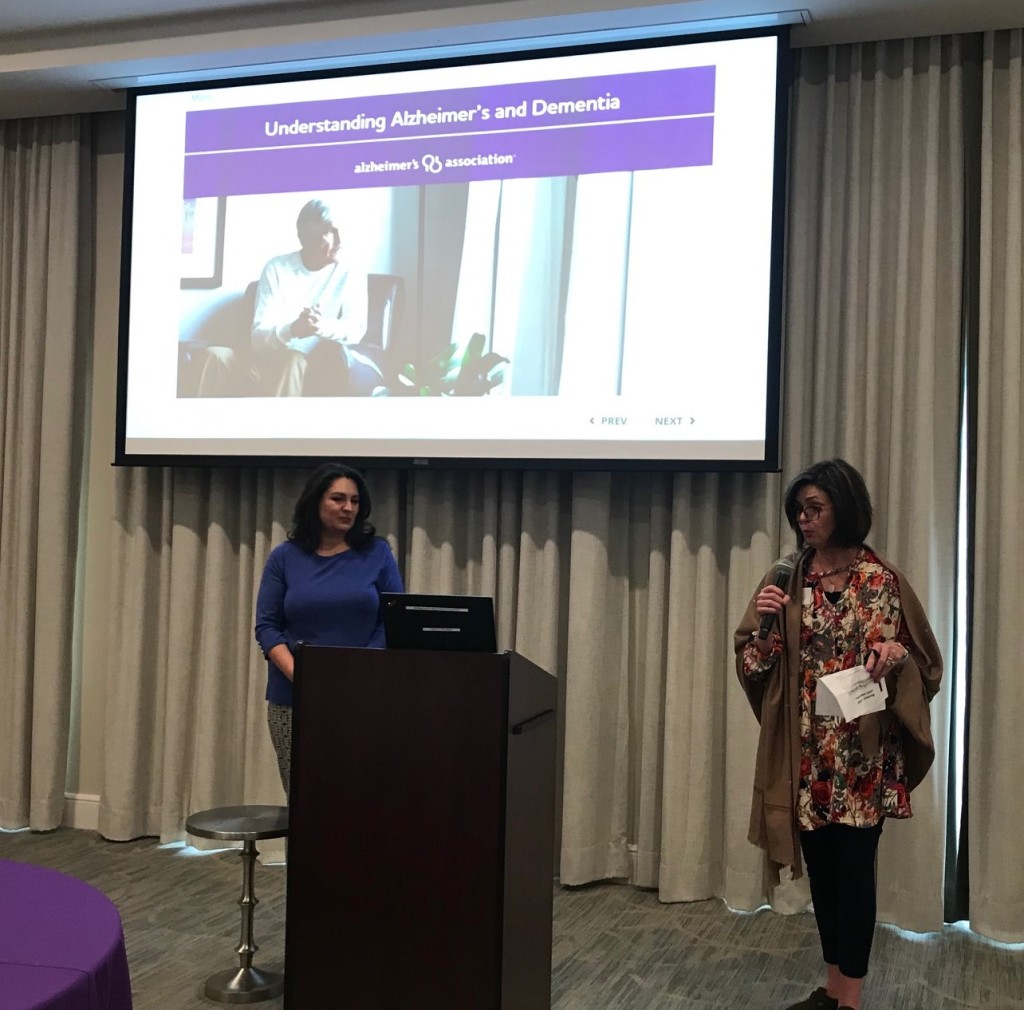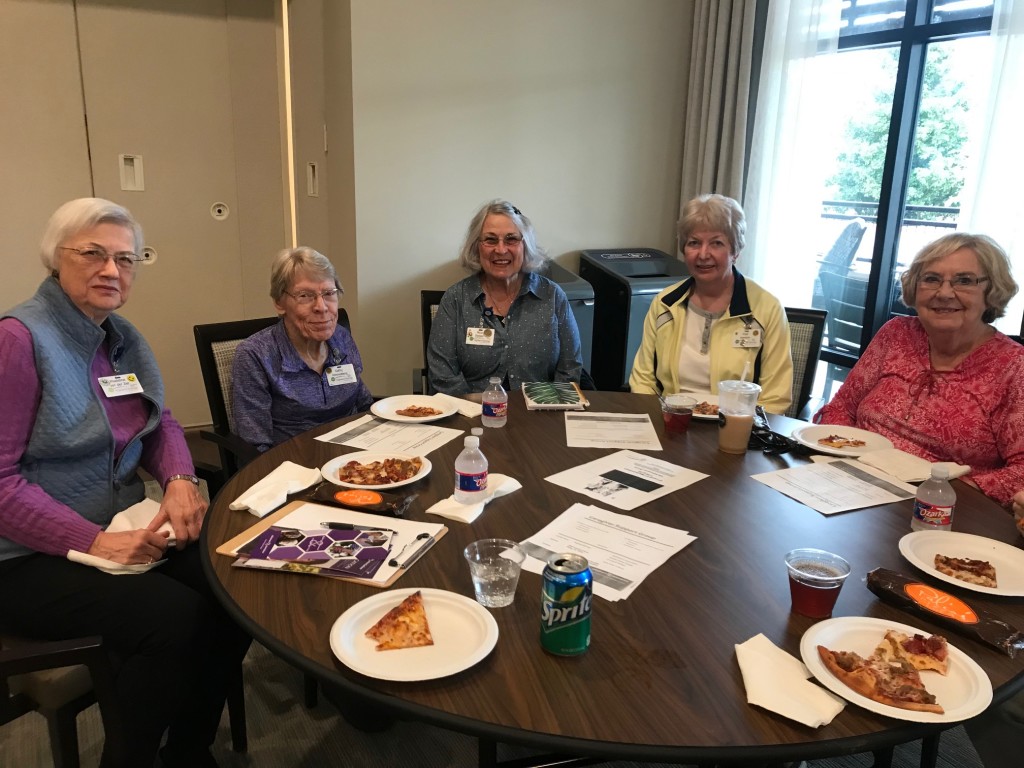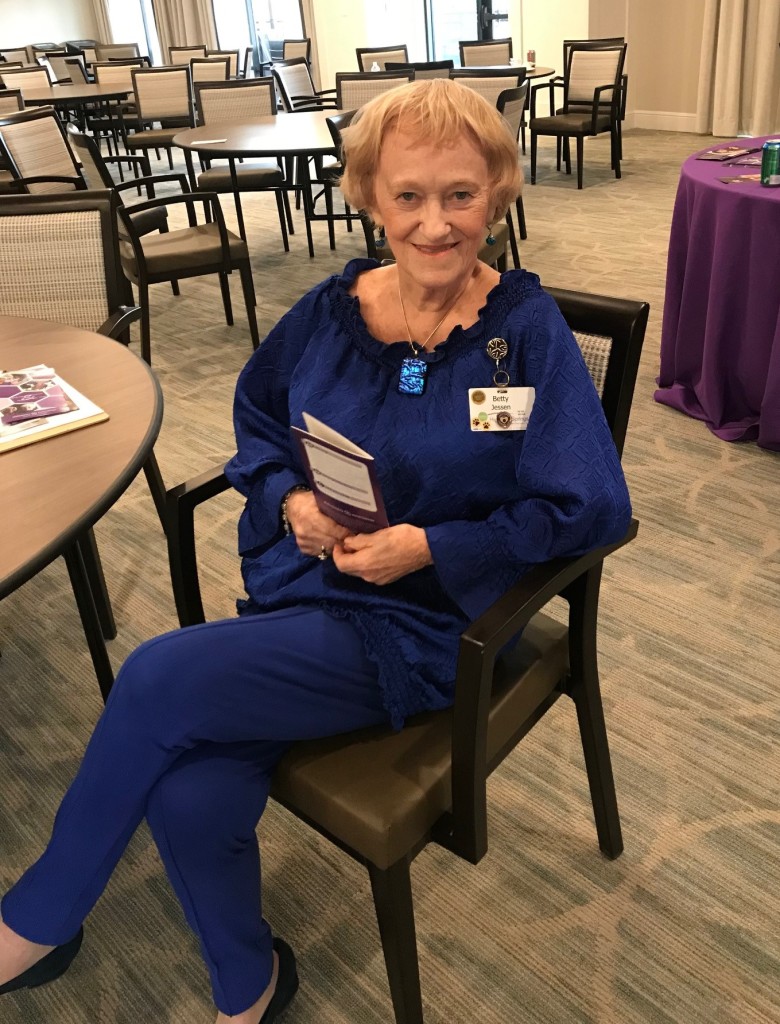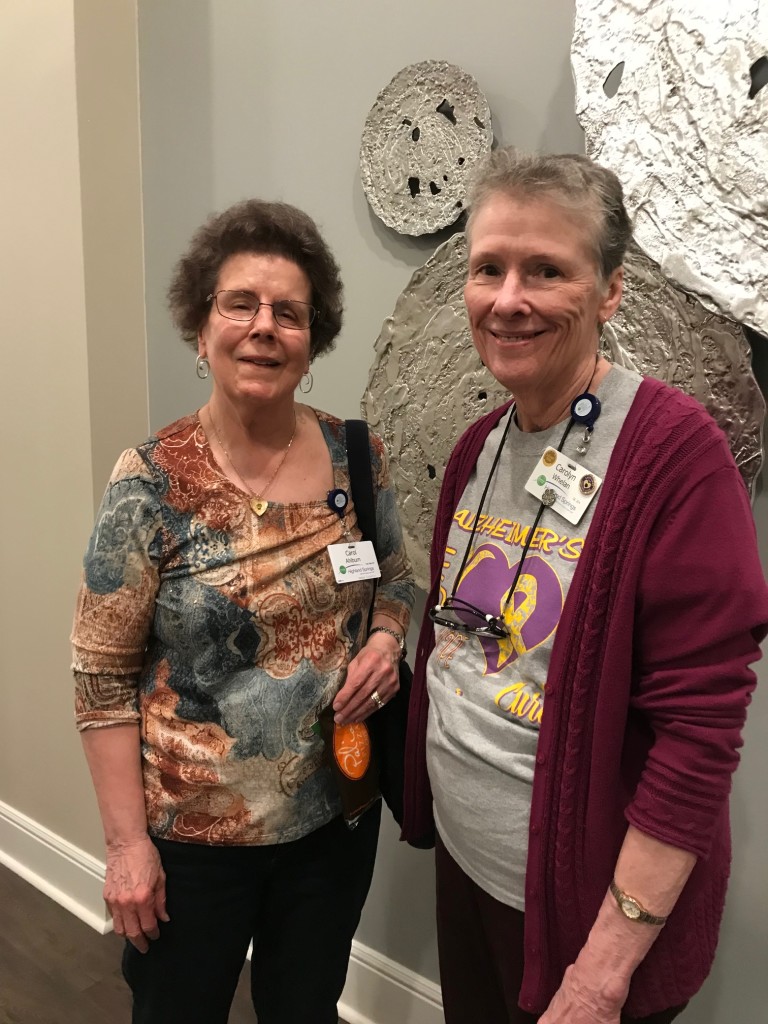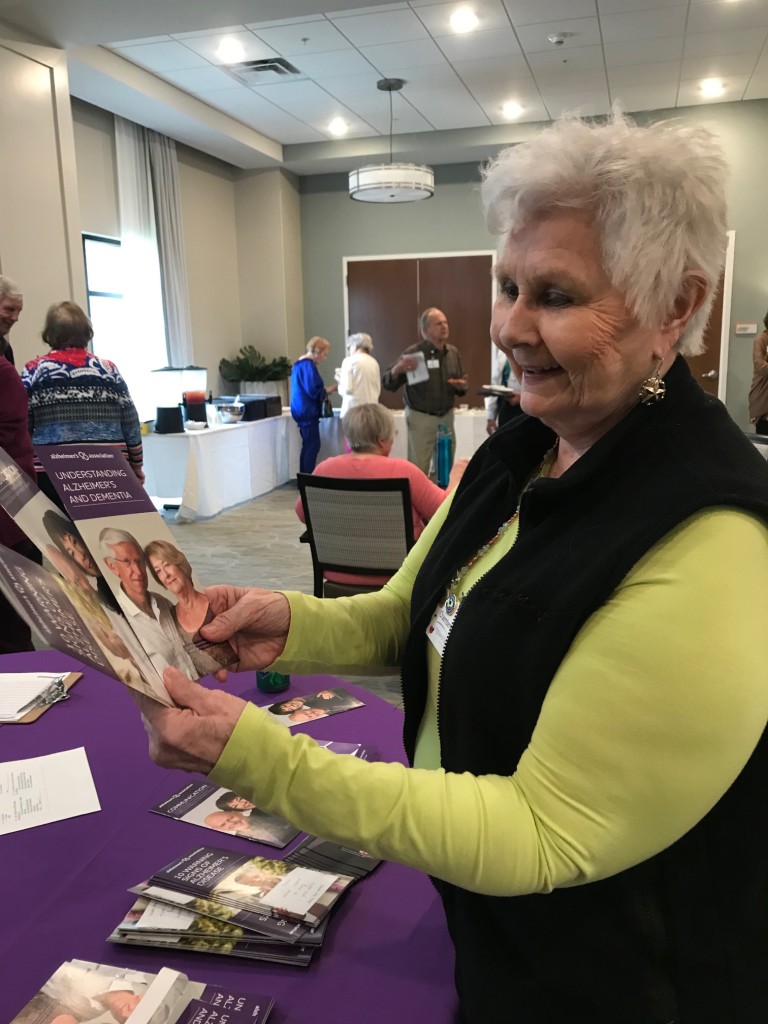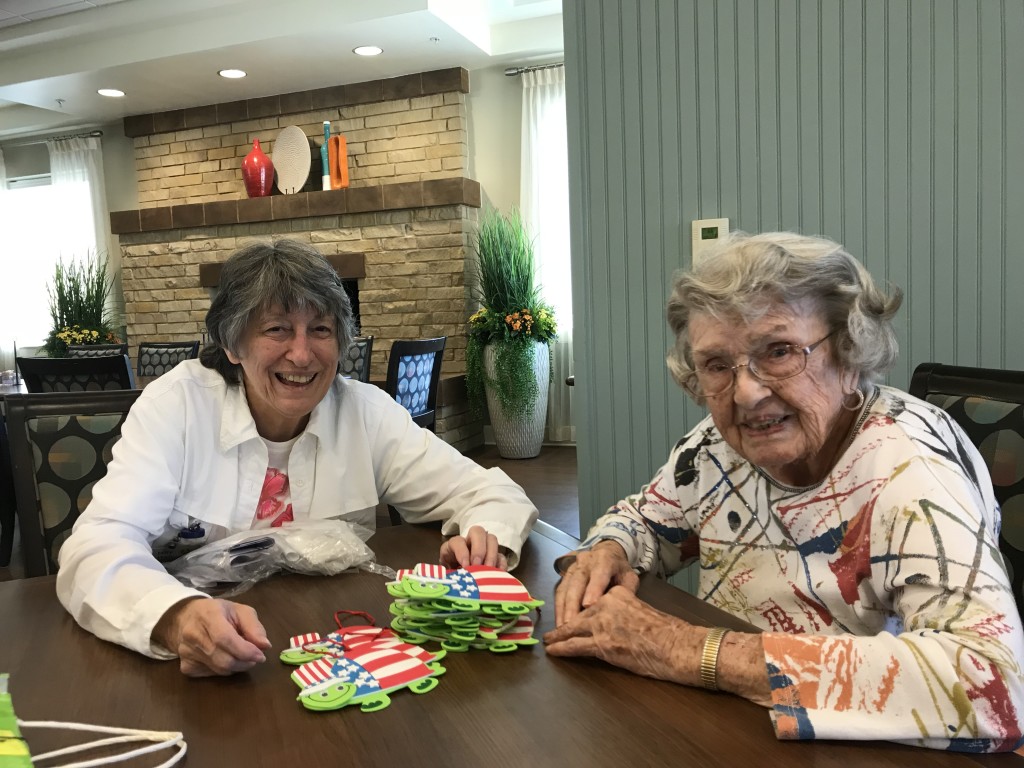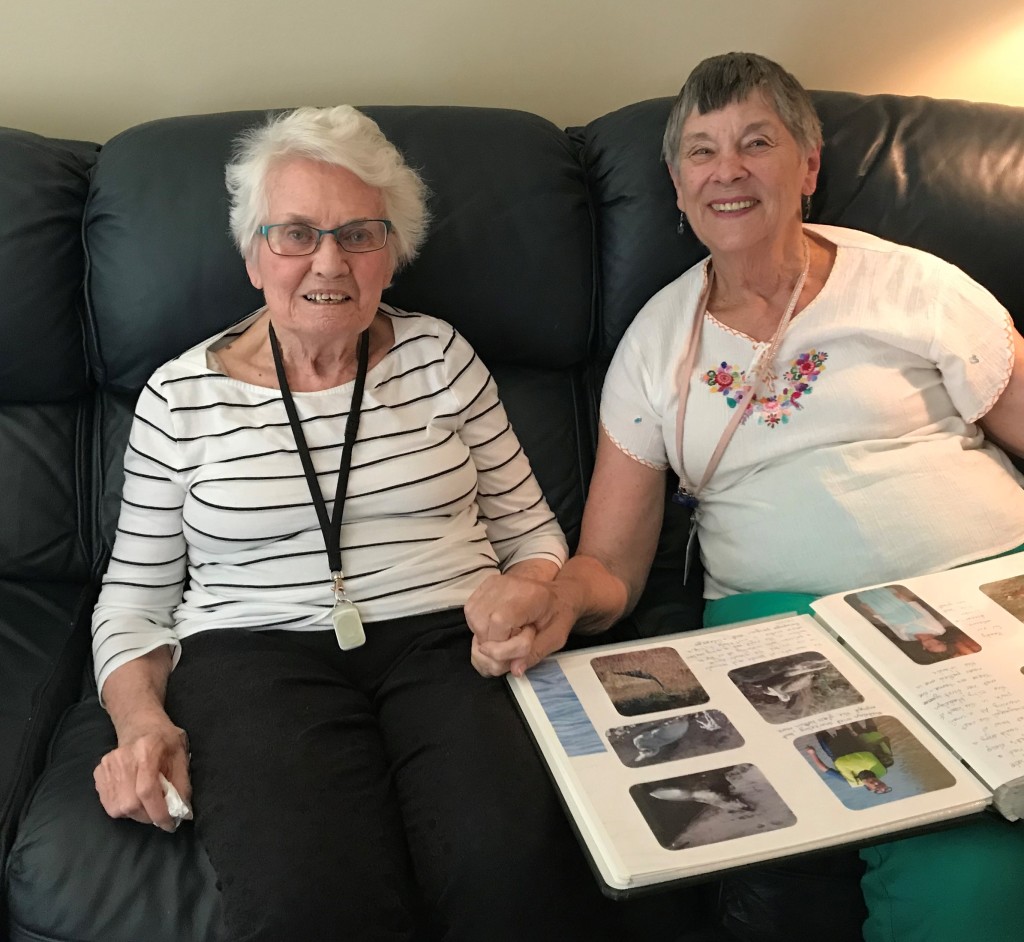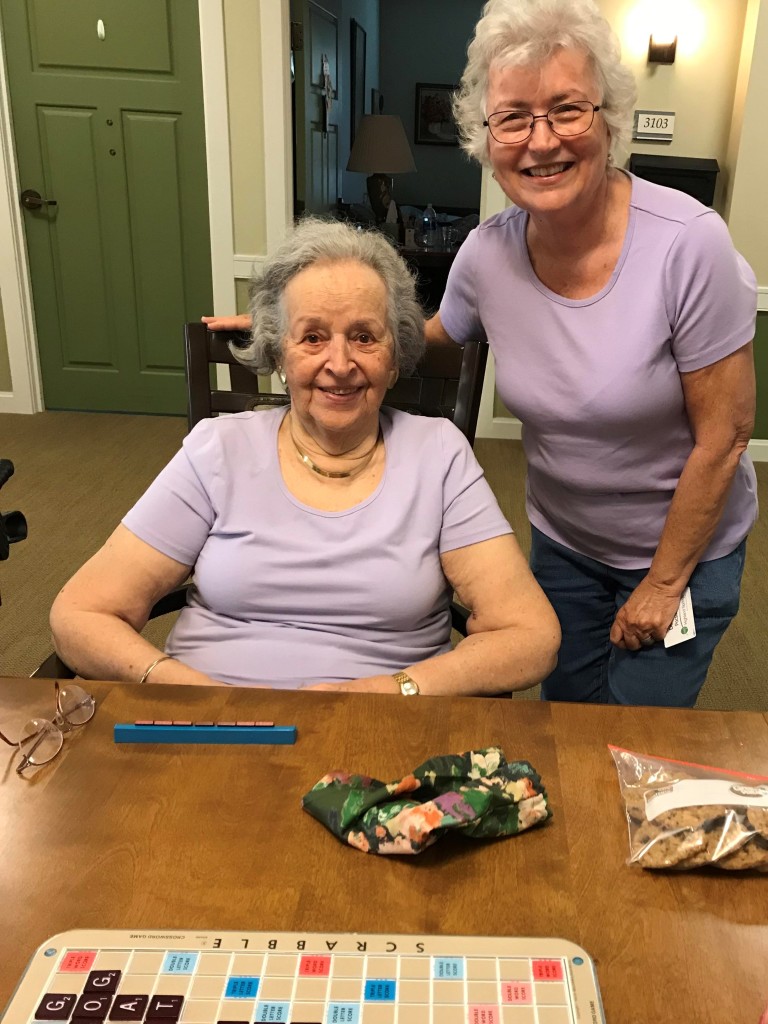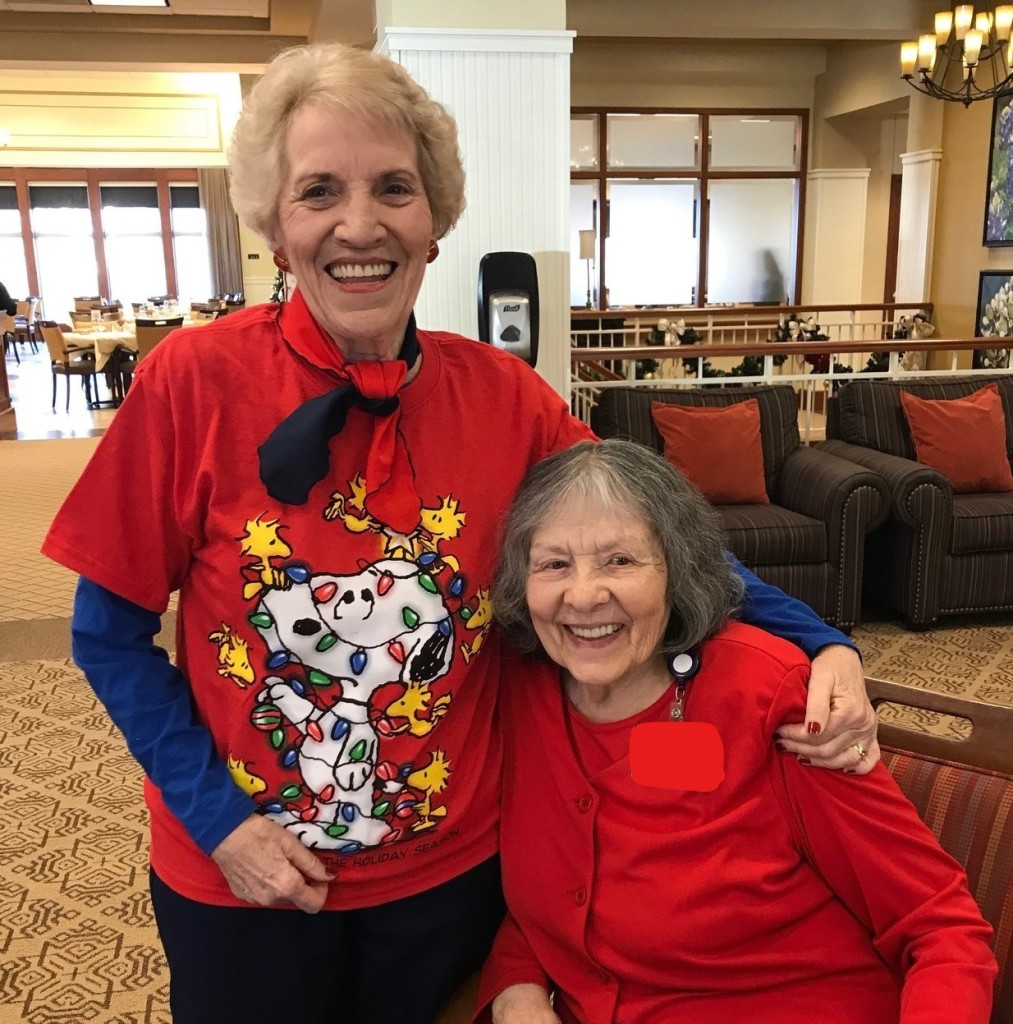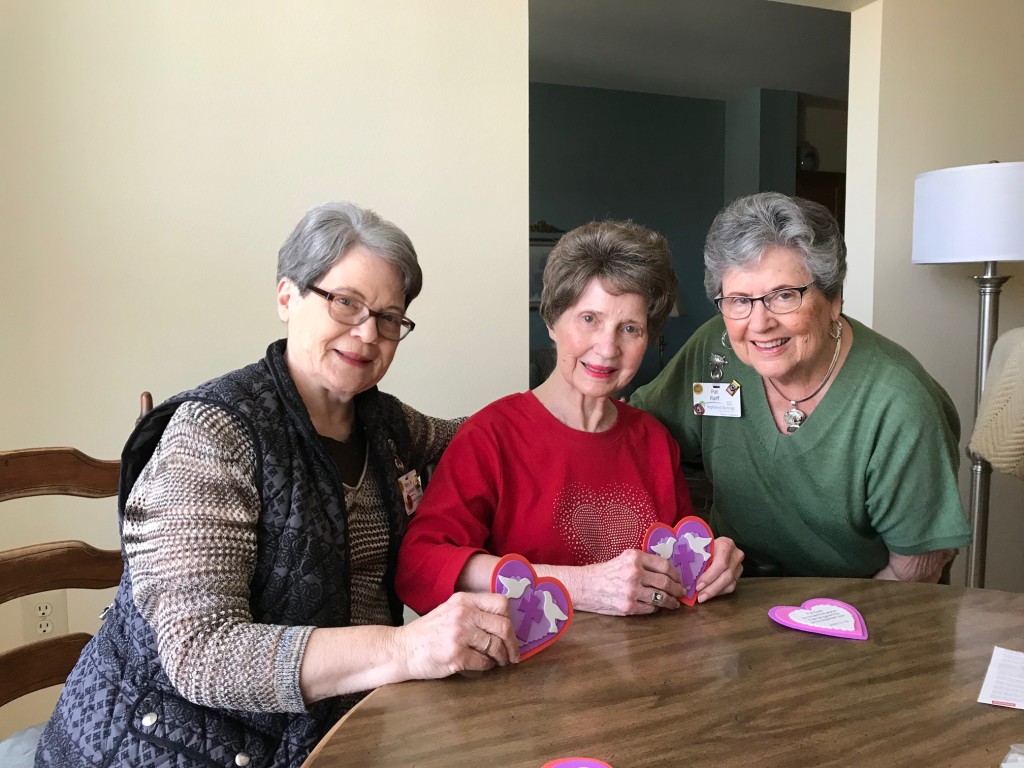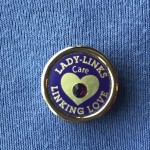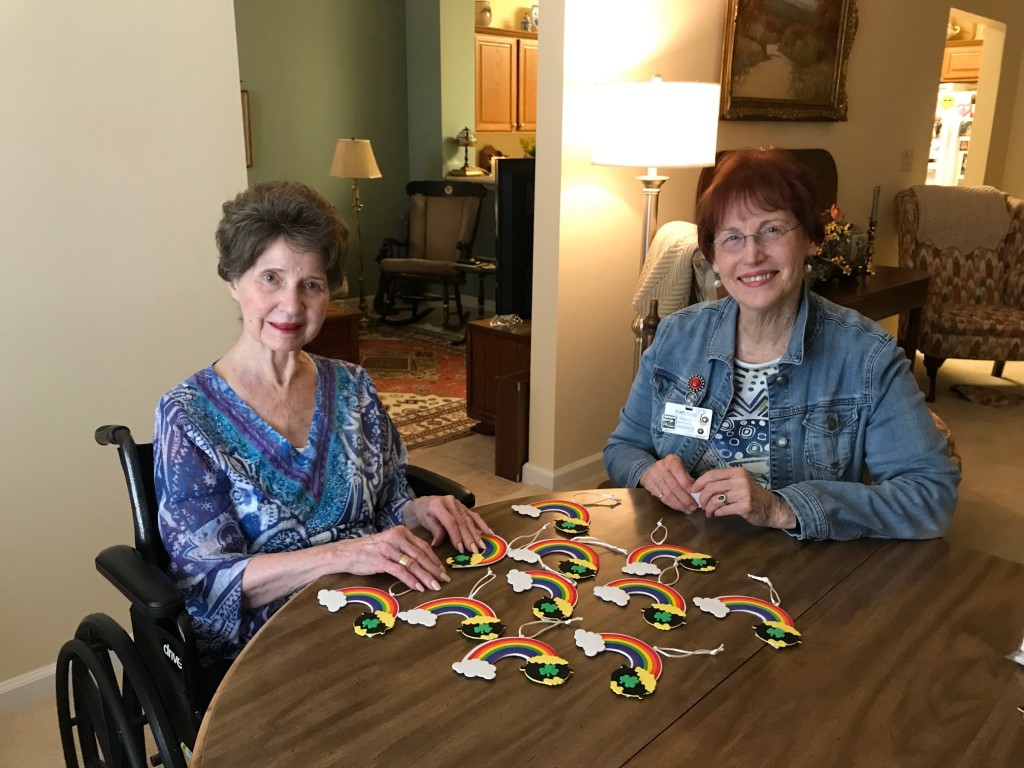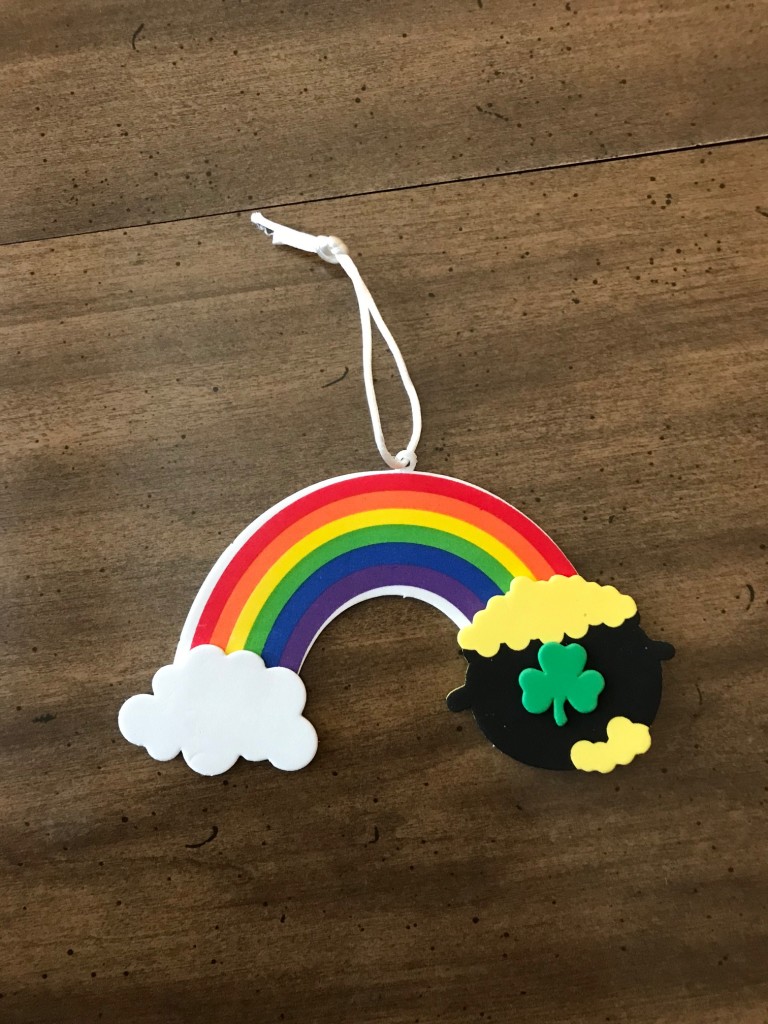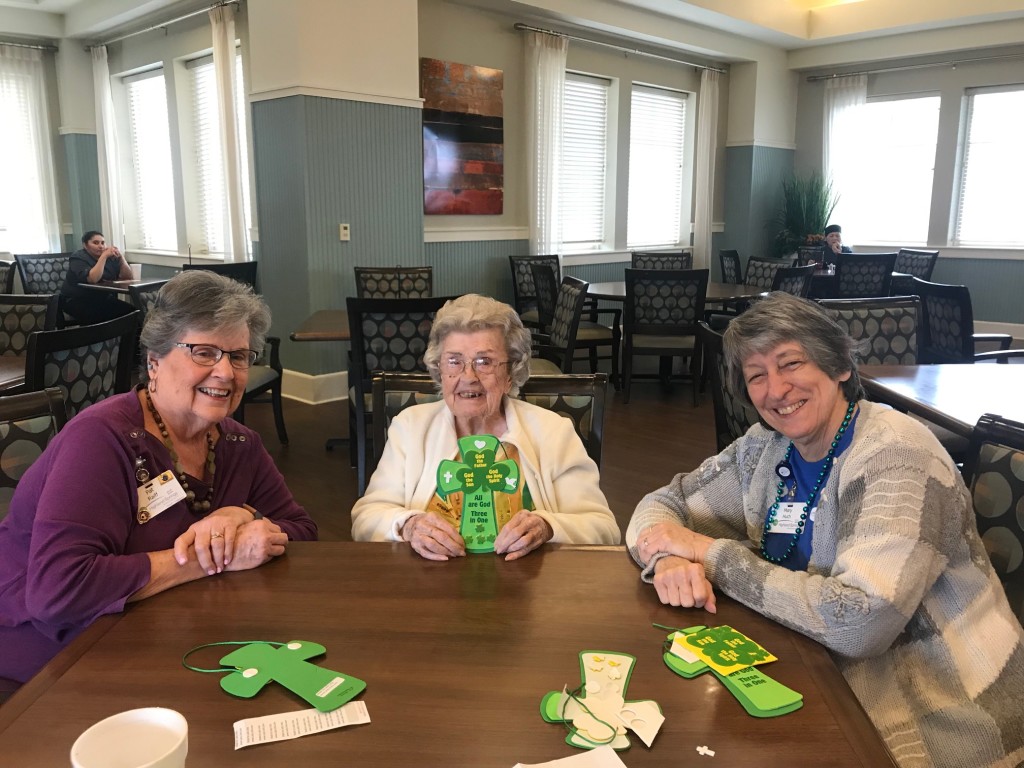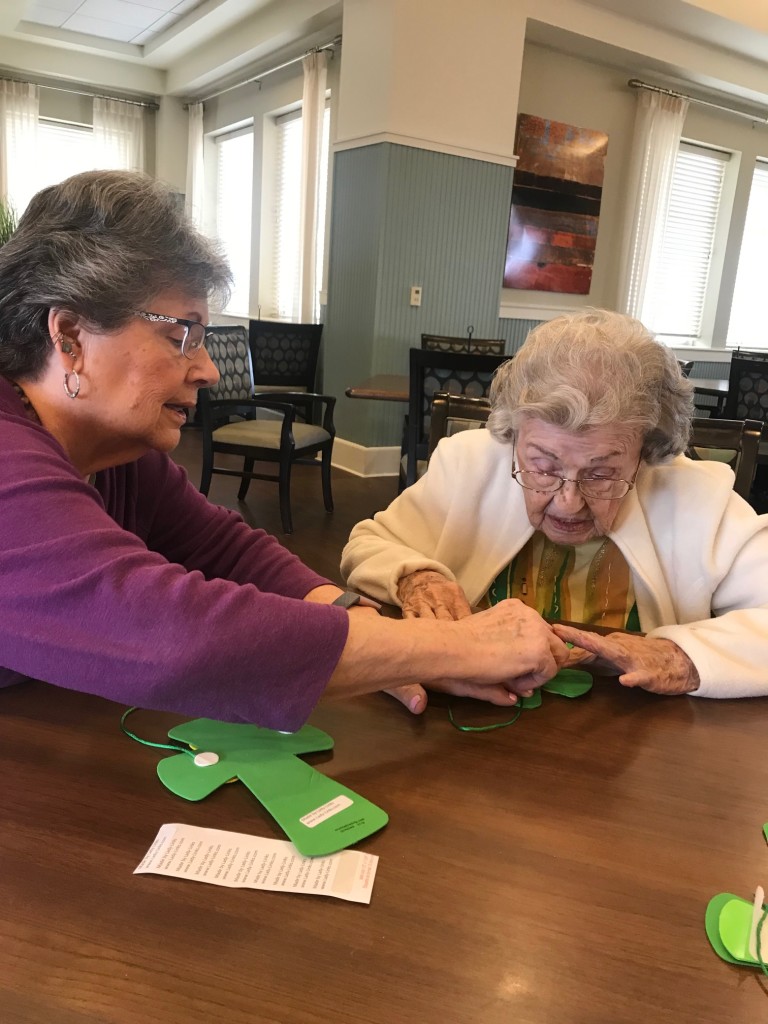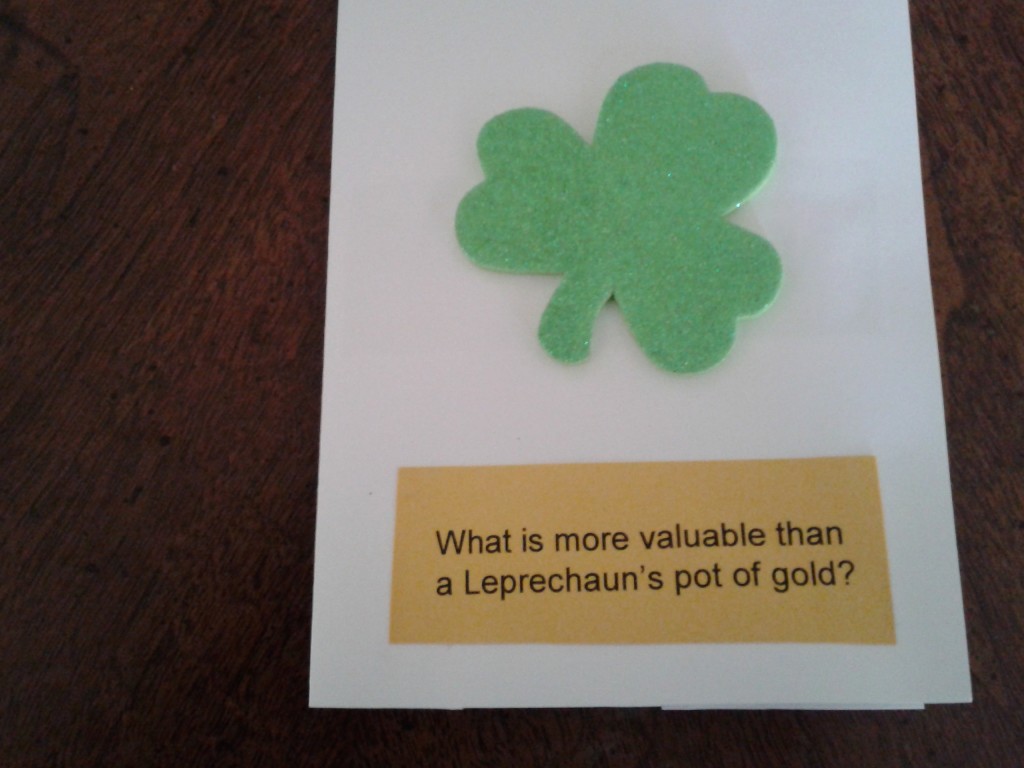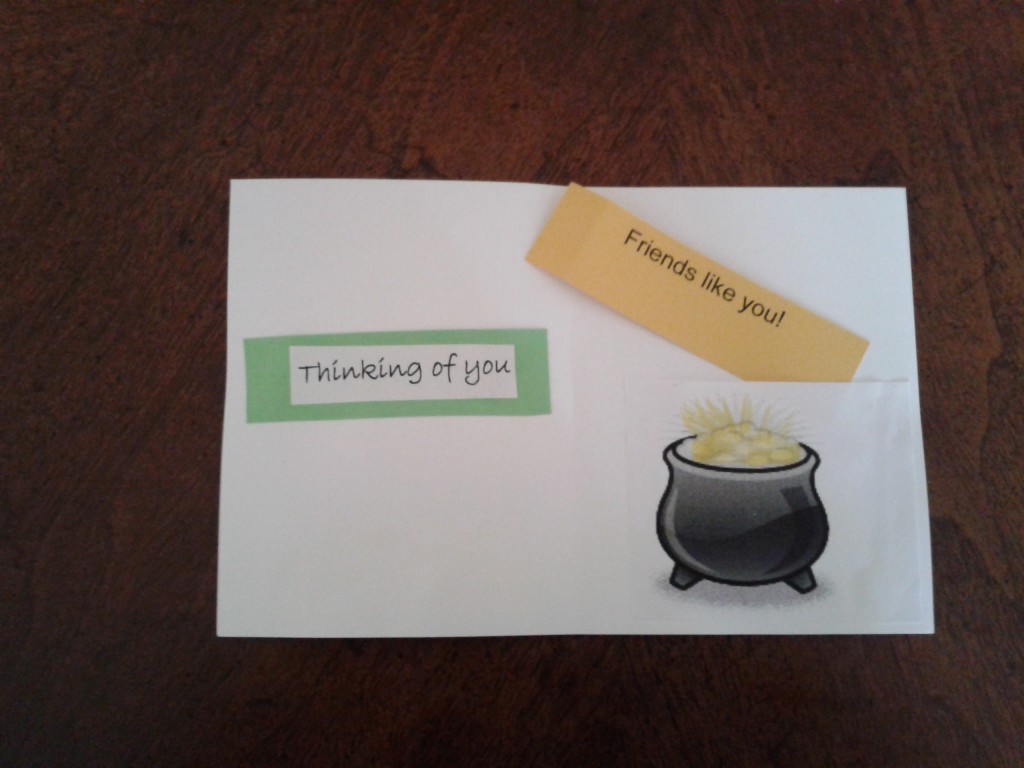As a child, did you ever walk in your home after school to the smell of freshly baked cookies? I did.
Today, the smell of cookies baking still brings back wonderful memories to me of those afternoons so long ago.
As Lady-Links, we look for creative ways to engage our dear friends in activities that inspire conversation and interaction. To do this, we sometimes think of ways to use our five senses to help our dear friends keep connected to the world around them.
The sense of smell is closely linked to memory. A whiff of baked goods or perfumes or flowers can promote wonderful childhood memories. When the sense of smell is used as a stimulus at our visits, we’ve had several conversations about the cologne our mothers used or the scents we remember from childhood at Christmas or other special holidays. The sense of taste provides opportunities to share about memories of special meals or even of our first cooking or baking experiences.
For the sense of touch and sight, letting our dear friend hold the object helps. They can feel the texture and weight of the object. They can see the shape and design.
Each Lady-Link will briefly talk about the object she brought, using guided discussion questions to help promote a memory or a connection with our dear friends. Hearing a description of the item while holding it is a great prompt to help remember something similar.
We’ve learned that these show-and-tell types of visits can work wonders in providing links to special memories. At one of our visits, a Lady-Link brought pieces of jewelry given to her by her grandmother and aunt. Memories about jewelry transitioned into how we used to wear hats and white gloves to church and other dress up events when we were children and even young adults.
Special pottery, items from a garden or even a picture can spark memories.
We can never understand the full connection of the five senses on the brain, but we know it’s there and it’s powerful. Opening a music box with a familiar melody led to dancing! What a joyful surprise that was!
How can you use the five senses to promote interaction between you and your friend or loved one with dementia? You’ll never know until you try!!


